Qaf 1.0
Sustainable Washing System

— Re-thinking Clothes Washing —
 Current Situation (Need Drivers).
Current Situation (Need Drivers). User Analysis & Needs.
User Analysis & Needs. Key Facts & Figures.
Key Facts & Figures.> Developing countries need more than just aid. They need systems that facilitate community development and the ability to help themselves. This, in turn, involves designing high quality and well-functioning products engineered for daily use that are made of locally sourced materials and available at a low cost.
> Today, like 29 million Afghans (2013), washing clothes by hand is a major obstacle in the life of 2.5 billion people — almost third of the world’s population — in developing countries, in particular young girls and women who form 95% of the task bearers. It’s a time-consuming and arduous task with up to 5 weekly washes each lasting up to 6 hours, exerting great physical and psychological pressures on the individual.
> To address this regional problem this project explored the effects of water dependency and clothes washing on social development, which has affected children’s and women’s health and well-being, as well as environmental conditions enormously. Qaf 1.0 was initiated as start-up to design and develop a sustainable washing system for developed and the emerging markets taking into consideration the local skills set, industry and available technology. Qaf 1.0 uses kinetic force with a rolling mechanism to wash clothes outdoors on-the-go or stationary at home, whilst making the process of washing three time quicker through a 65% reduction in labour and a 60% increase in efficiency.
> Qaf 1.0 received funding from the James Dyson Foundation and Wates Foundation, and was incubated at InnovationRCA where it went through a comprehensive period of development in Asia that included co-creation processes with the end-users as well as the local manufacturers and suppliers in Afghanistan, Pakistan, and India.
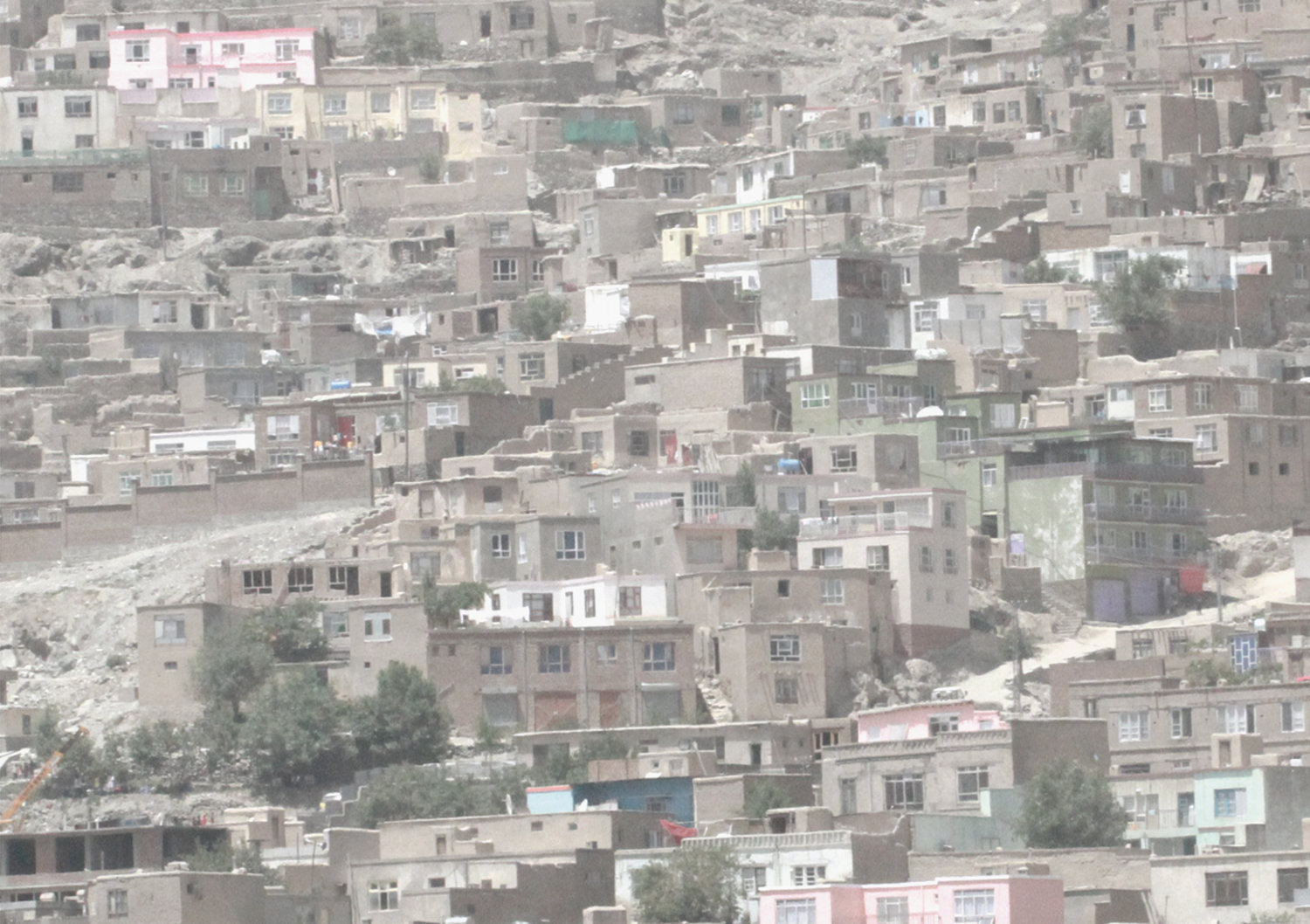 Conditions (inadequate infrastructure).
Conditions (inadequate infrastructure).

Environment (high terrain and unequal surfaces).
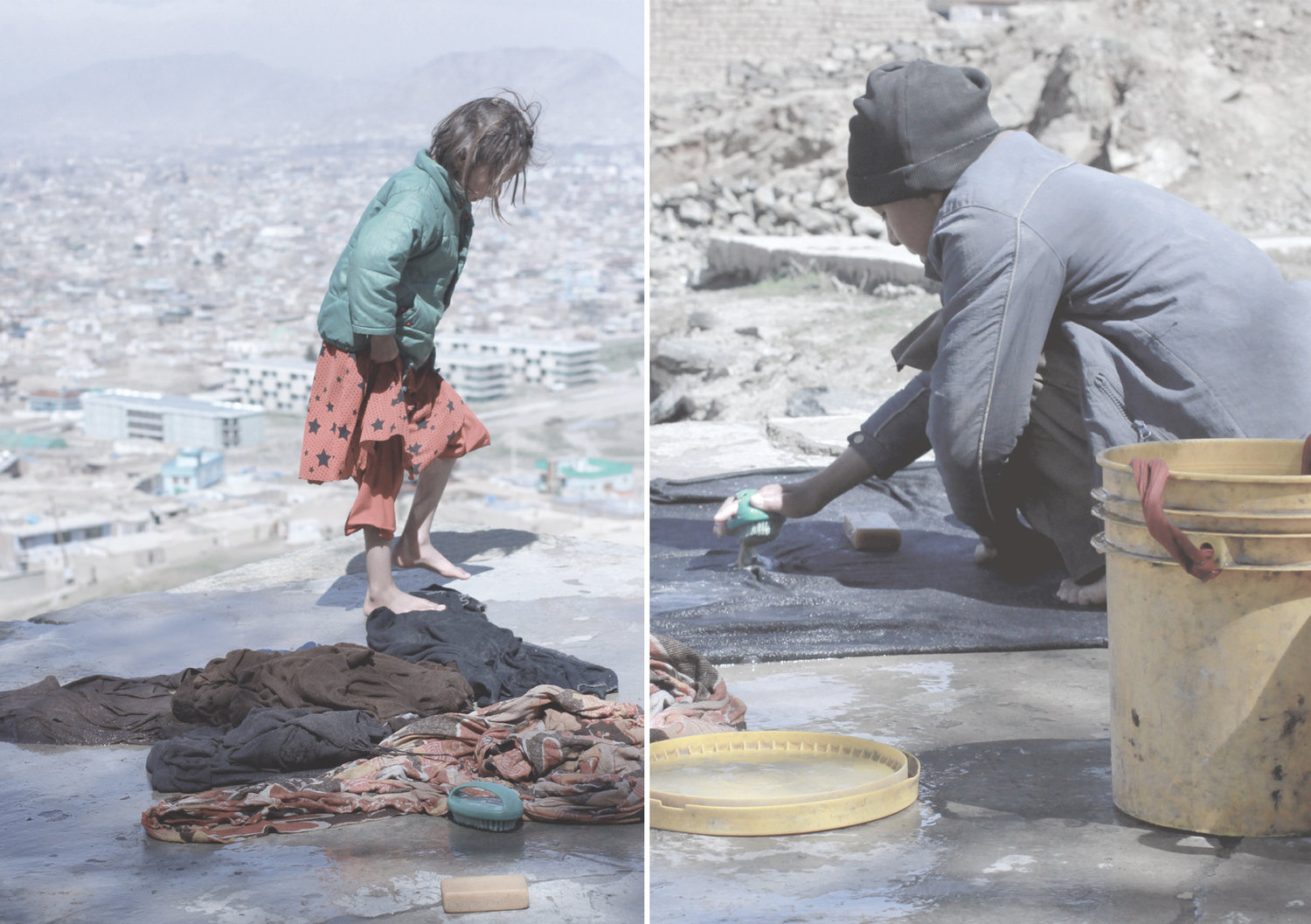 Key Users.
Key Users.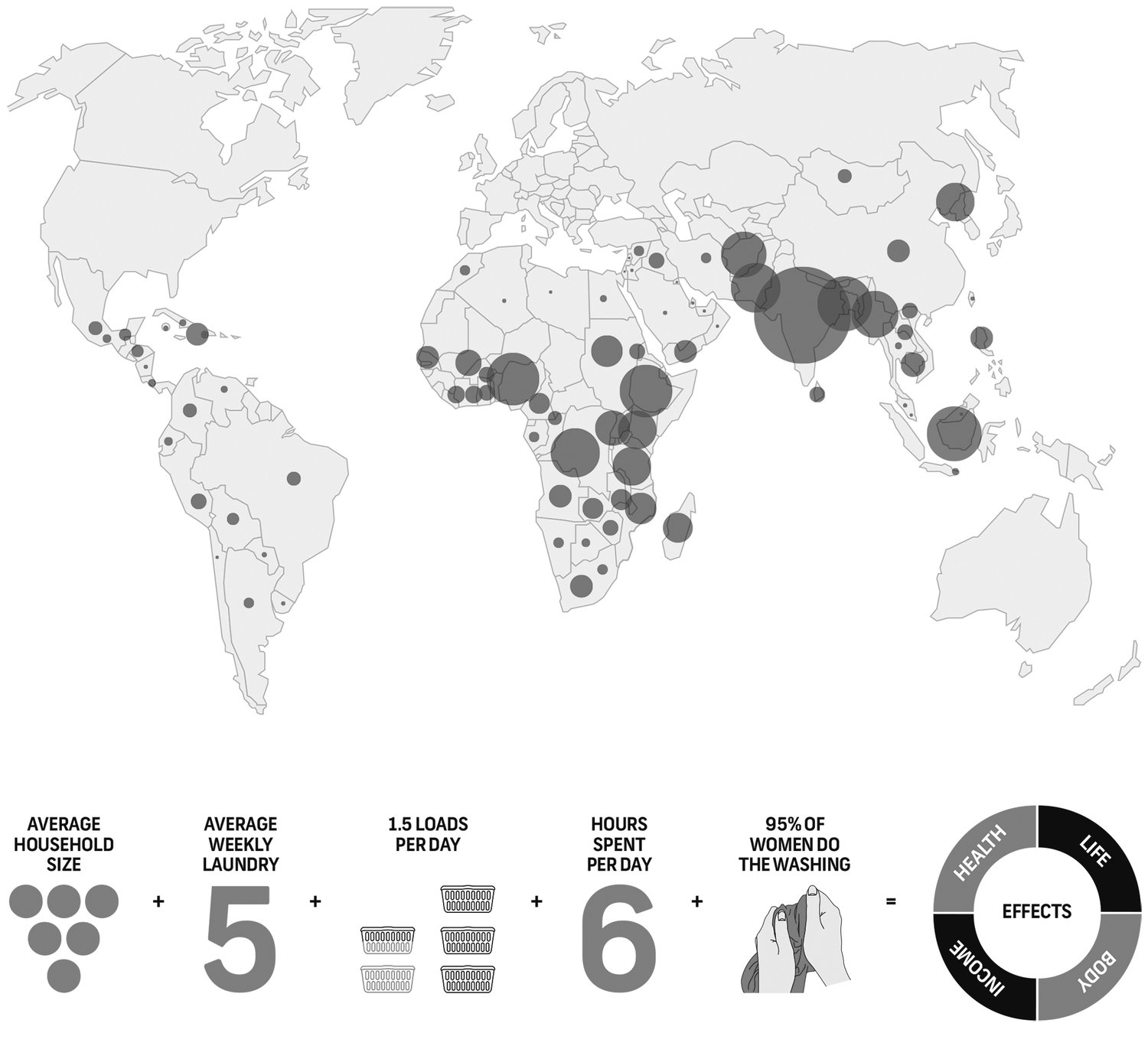 Current Practice & Population Without Washing Machine.
Current Practice & Population Without Washing Machine.
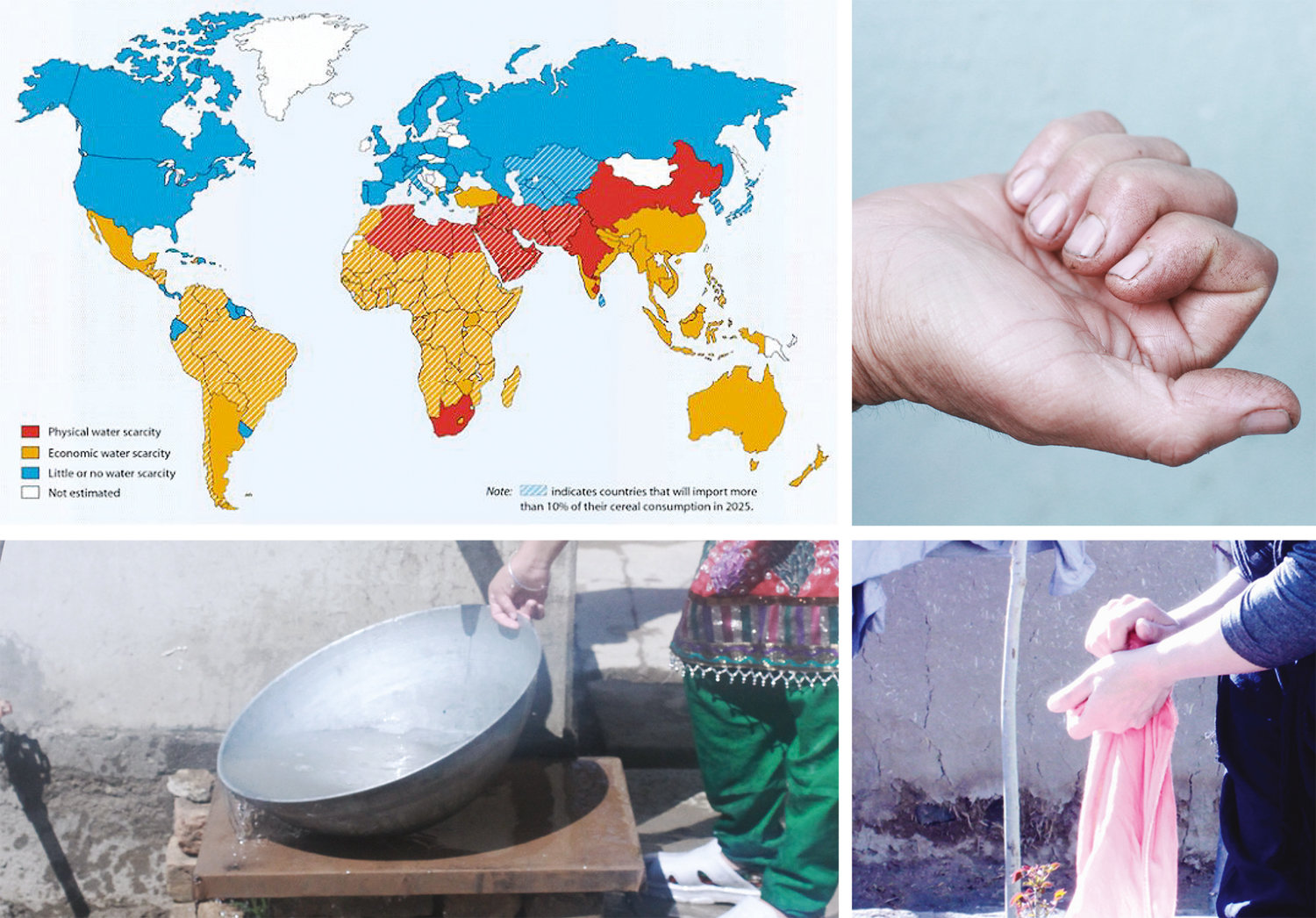
Health & Environment Impact (cultural misunderstandings and unethical practices).
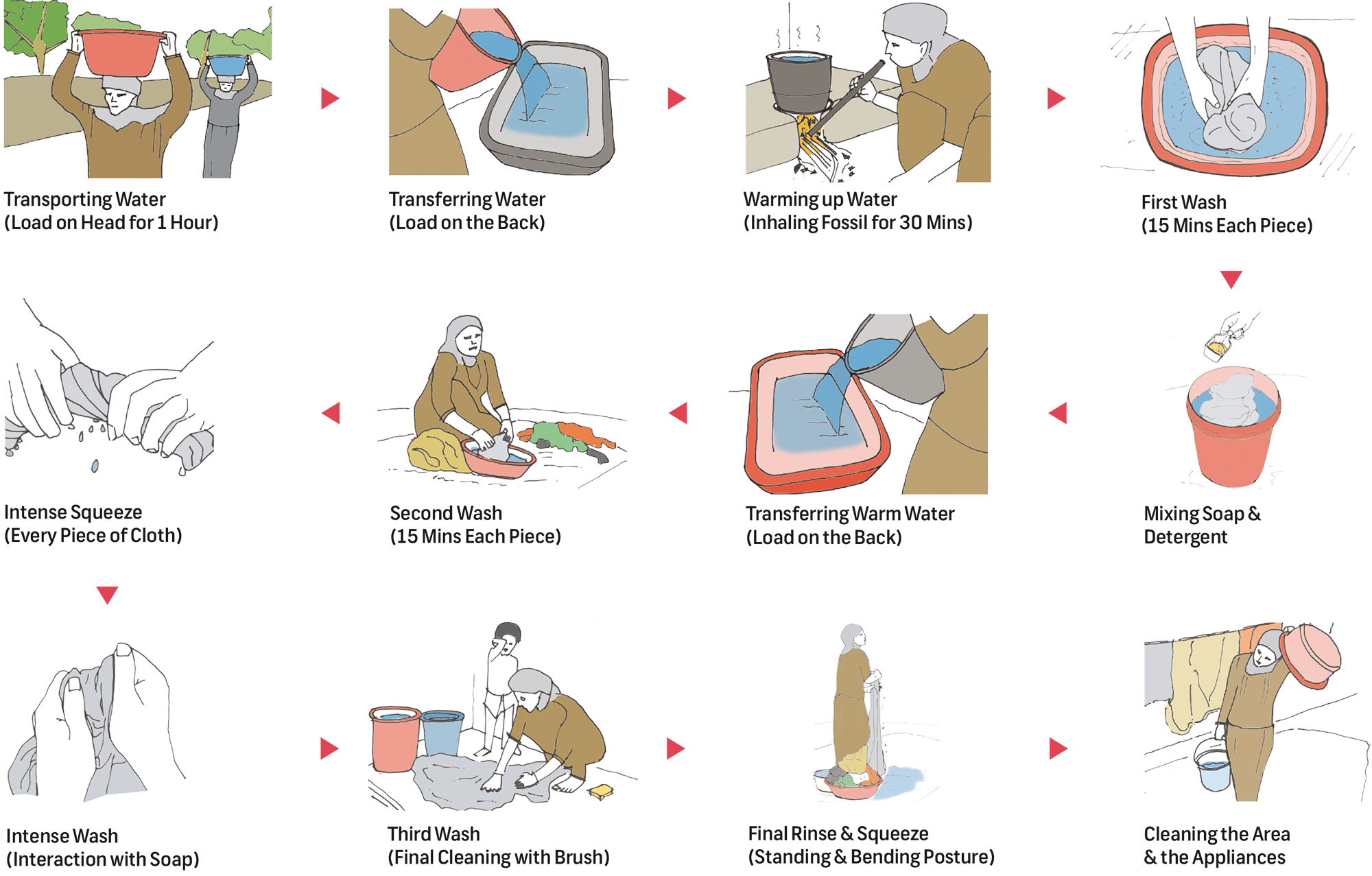 Current Practice & Washing Process.
Current Practice & Washing Process. Current Practice, Tools & Appliances.
Current Practice, Tools & Appliances. Key Issues.
Key Issues.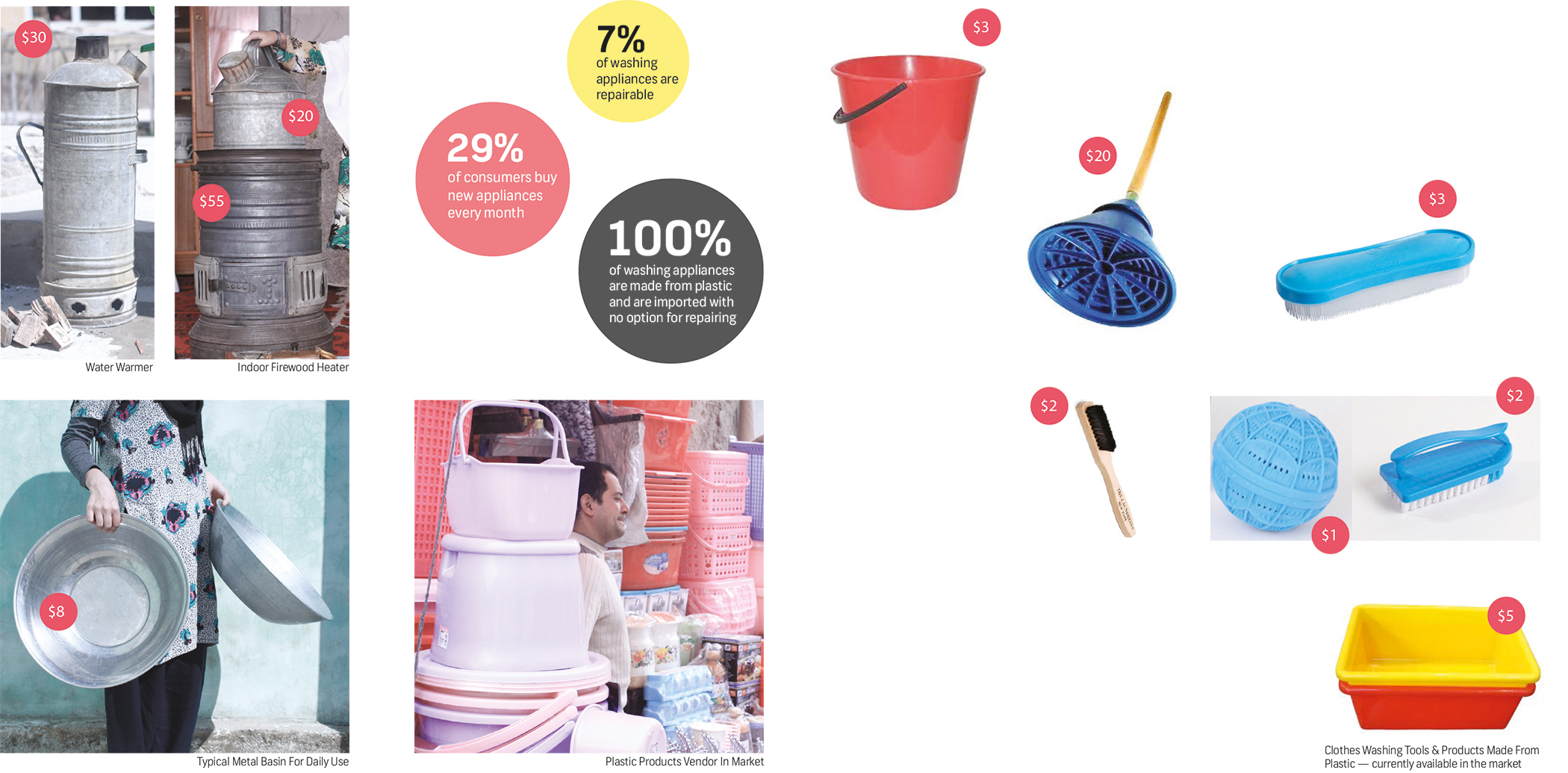 Tools & Appliances in Context (cost comparison of locally manufactured with the imported ones).
Tools & Appliances in Context (cost comparison of locally manufactured with the imported ones).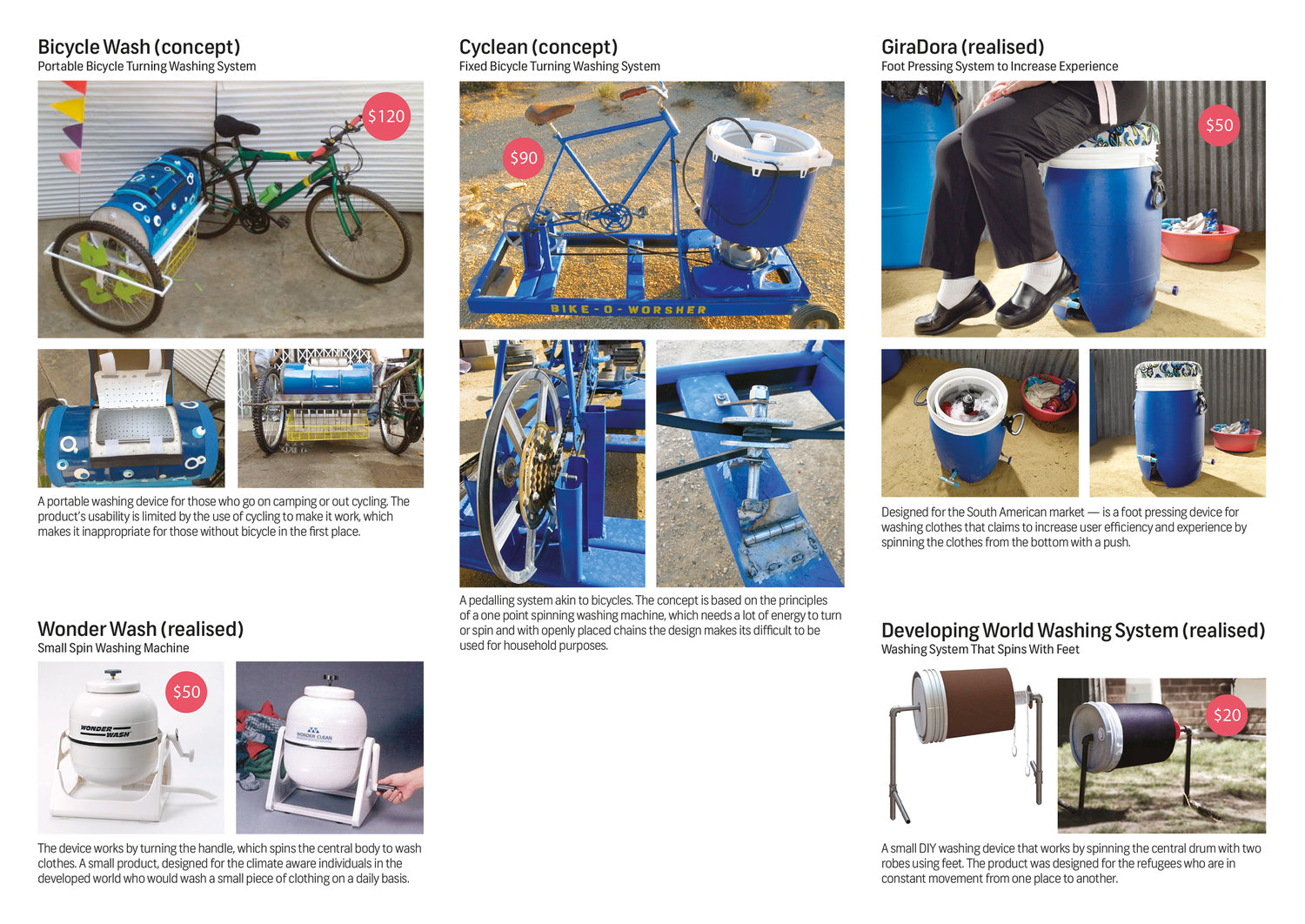 Tools & Appliances out of Context.
Tools & Appliances out of Context. Dynamics of Local Market (visualising local industriesand available resources).
Dynamics of Local Market (visualising local industriesand available resources).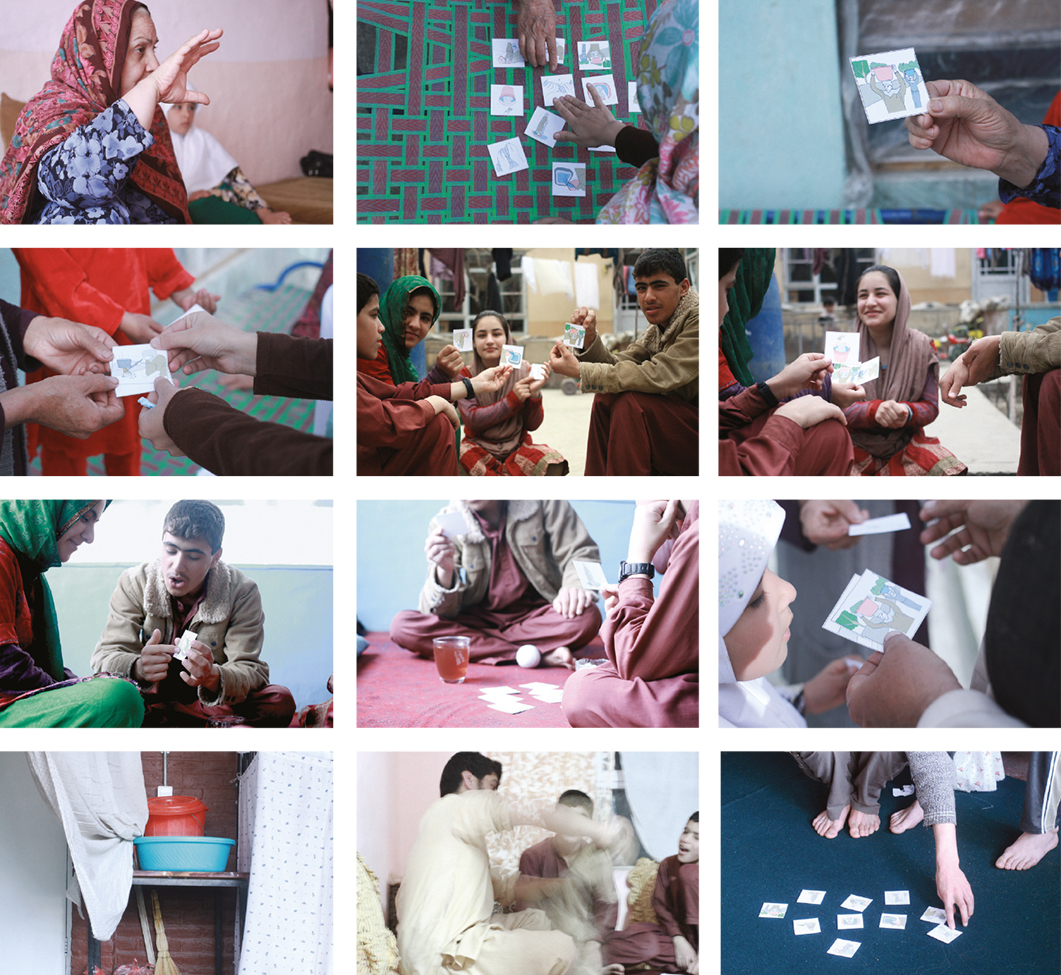 Co-creation with End-users (workshops were held in different locations with diverse user groups using the Cards Method).
Co-creation with End-users (workshops were held in different locations with diverse user groups using the Cards Method).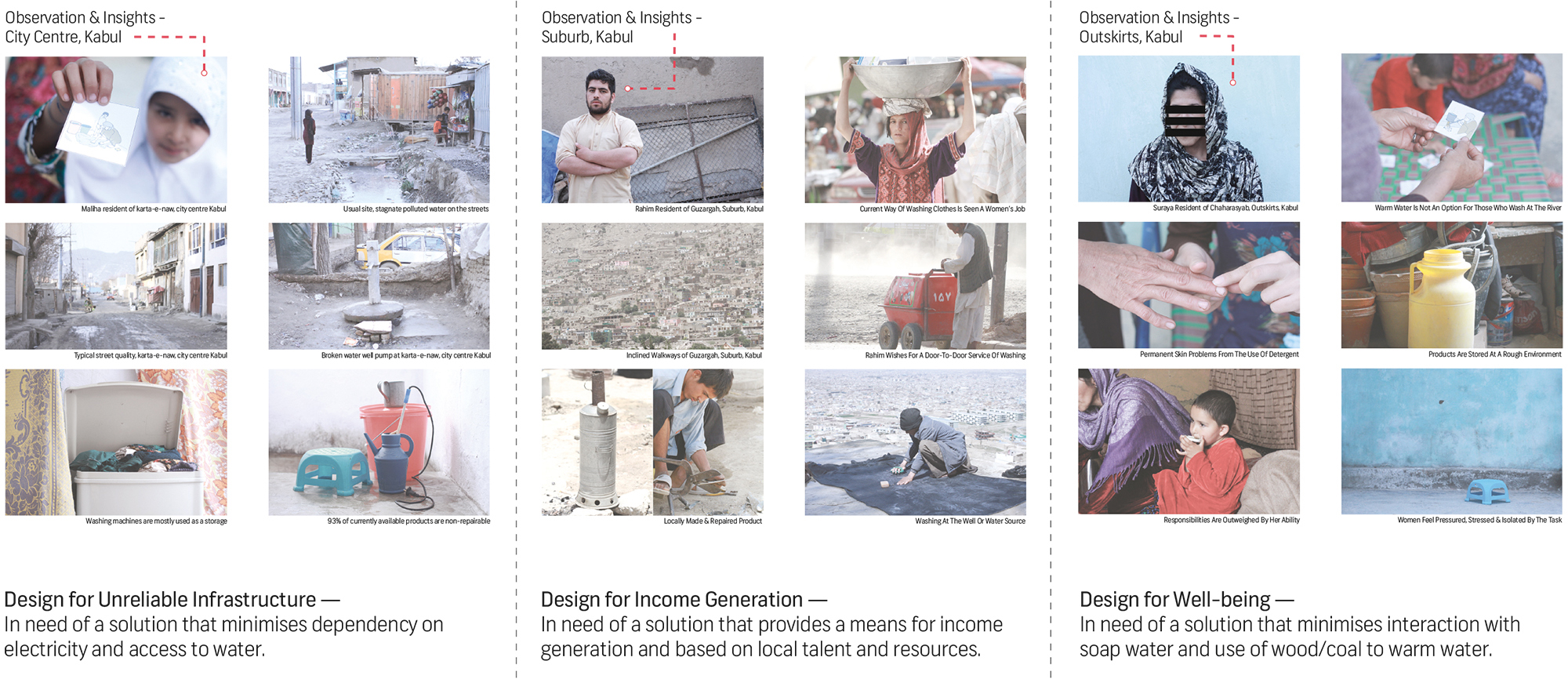 User Observation & Insights (need for a solution designed for an unreliable infrastructure that lacks electricity and access to water, whilst providing a means for income generation and well-being).
User Observation & Insights (need for a solution designed for an unreliable infrastructure that lacks electricity and access to water, whilst providing a means for income generation and well-being). Regional Stakeholders (weak industrial base and unavailability of raw material, the region is reliant on import from the neighbouring countries).
Regional Stakeholders (weak industrial base and unavailability of raw material, the region is reliant on import from the neighbouring countries).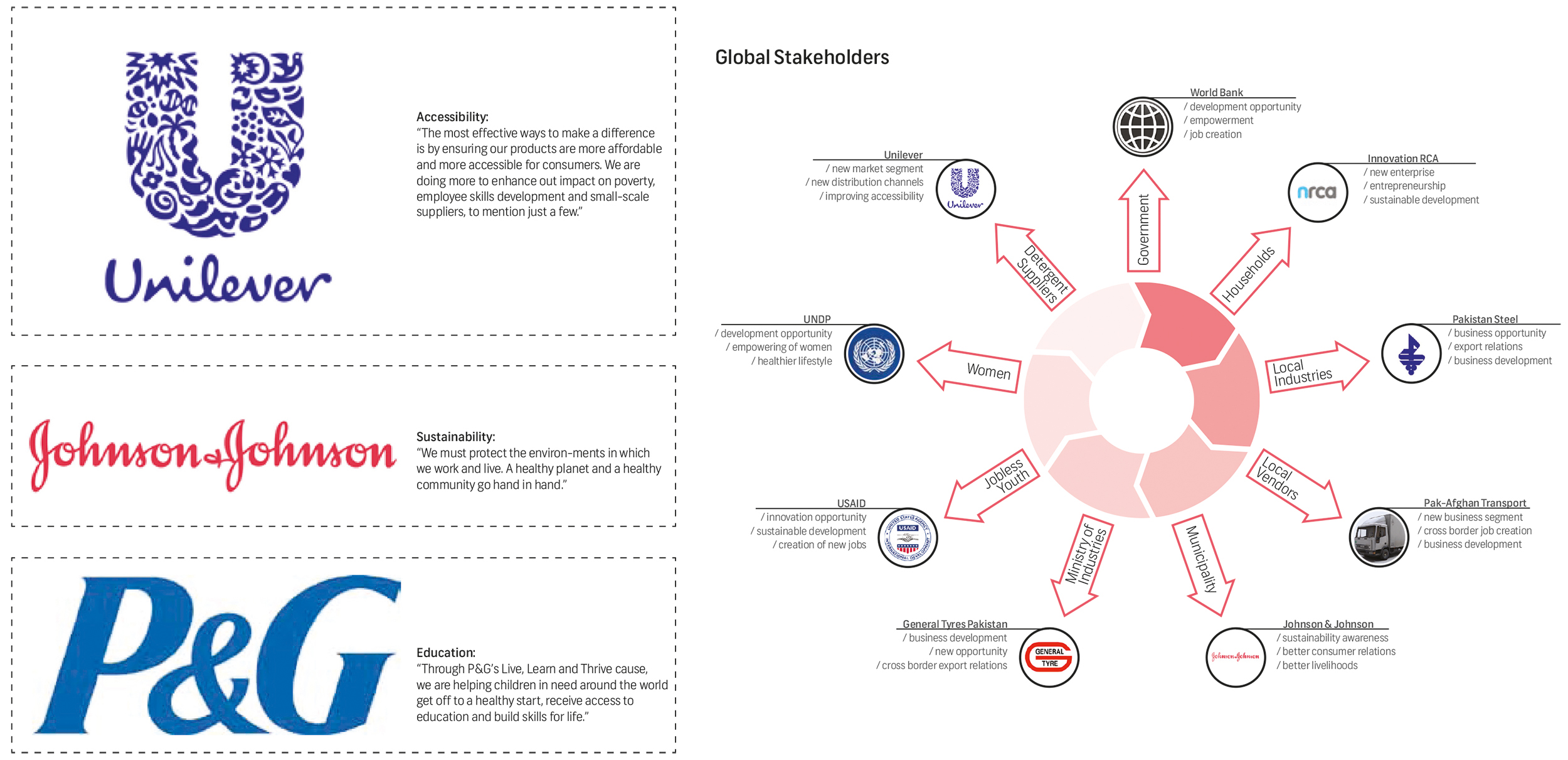 Global Stakeholders (acting as a parent company, the global stakeholders would support the solution through their strong connectivity, marketing, distribution and sales, whilst meeting their corporate and ethical targets).
Global Stakeholders (acting as a parent company, the global stakeholders would support the solution through their strong connectivity, marketing, distribution and sales, whilst meeting their corporate and ethical targets). Concept Development (with a focus on user and detergent interaction, water consumption, and value of time).
Concept Development (with a focus on user and detergent interaction, water consumption, and value of time).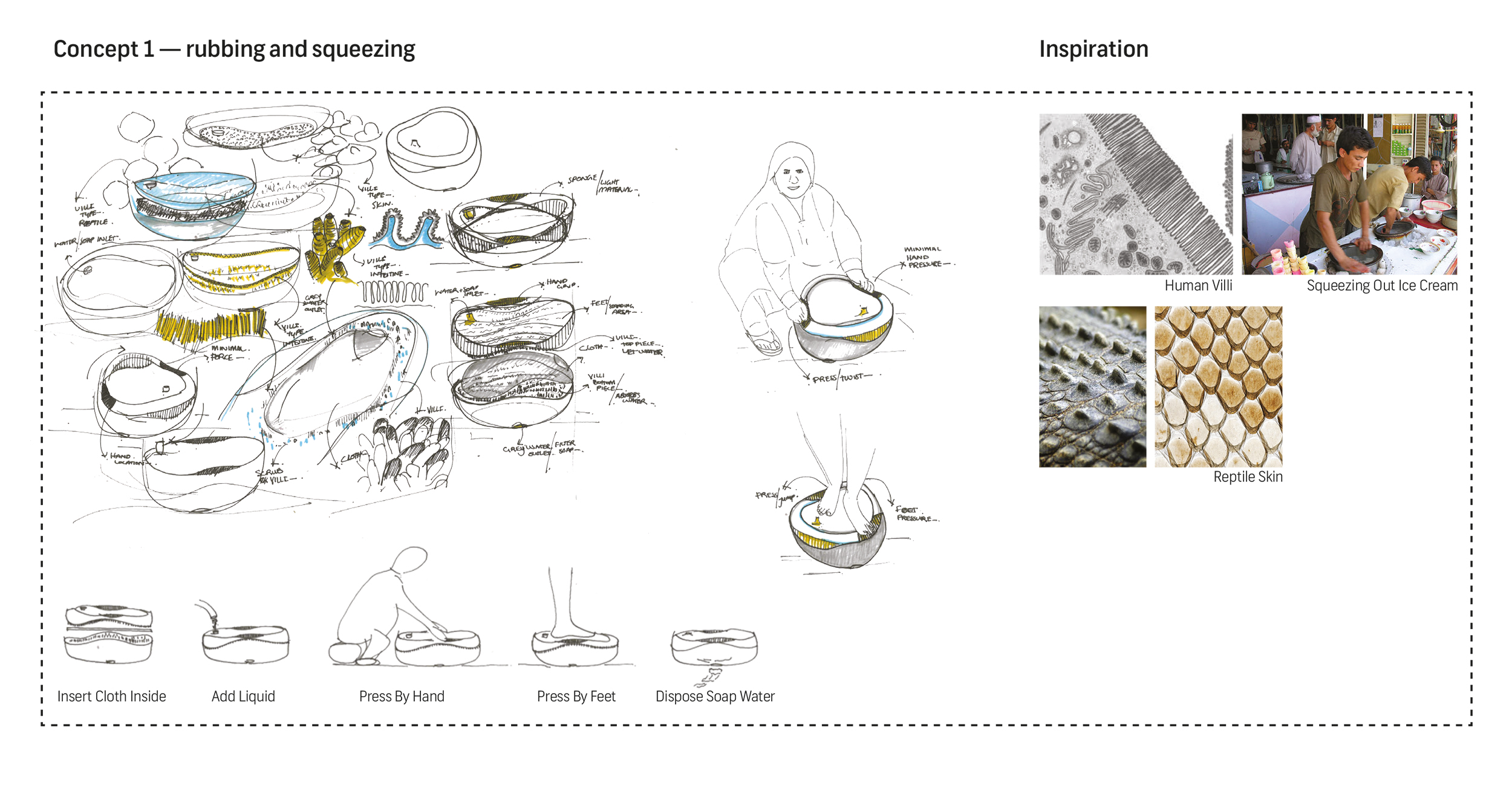 Concept 1 (rubbing and squeezing).
Concept 1 (rubbing and squeezing).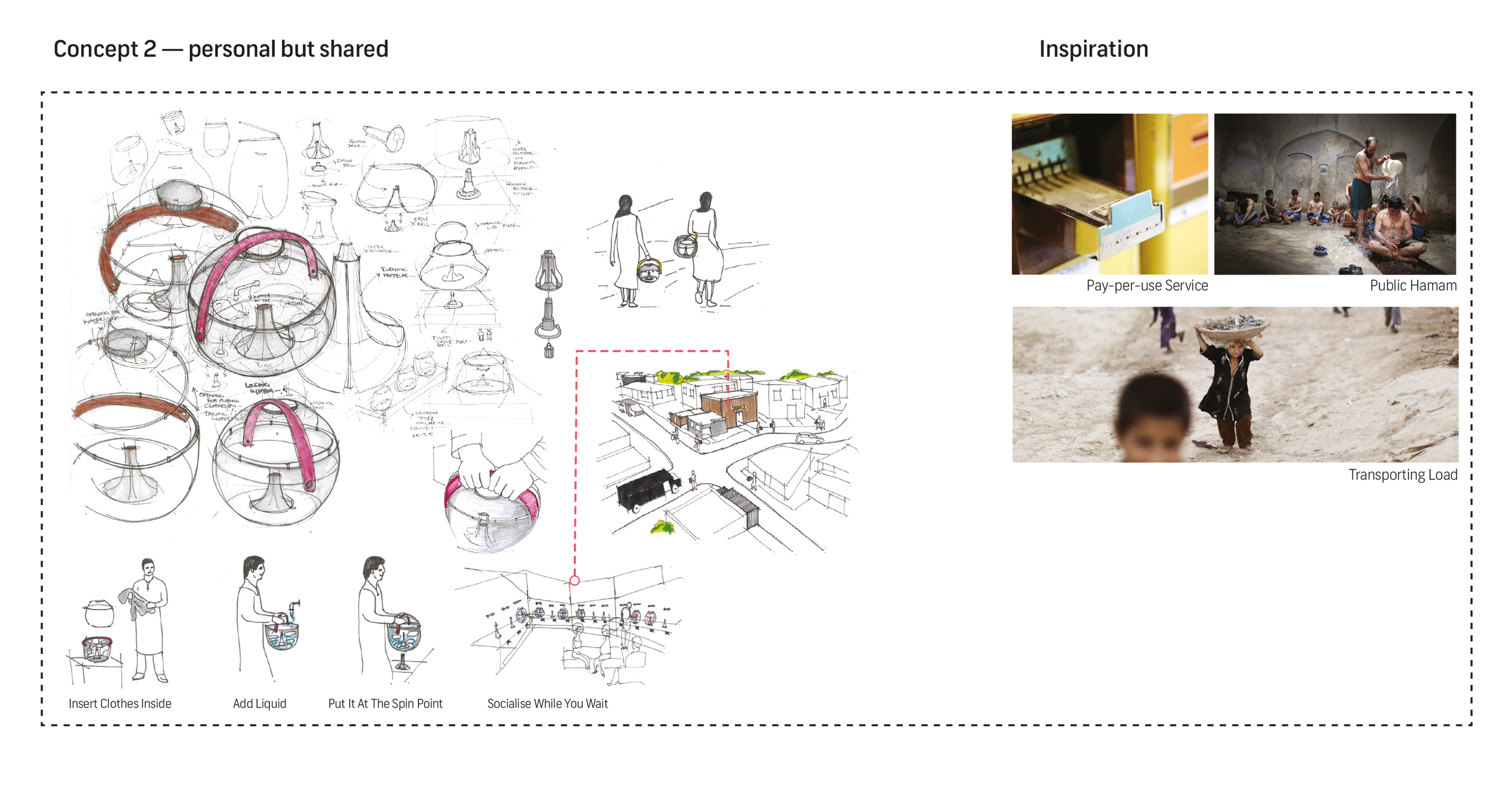 Concept 2 (personal but shared).
Concept 2 (personal but shared).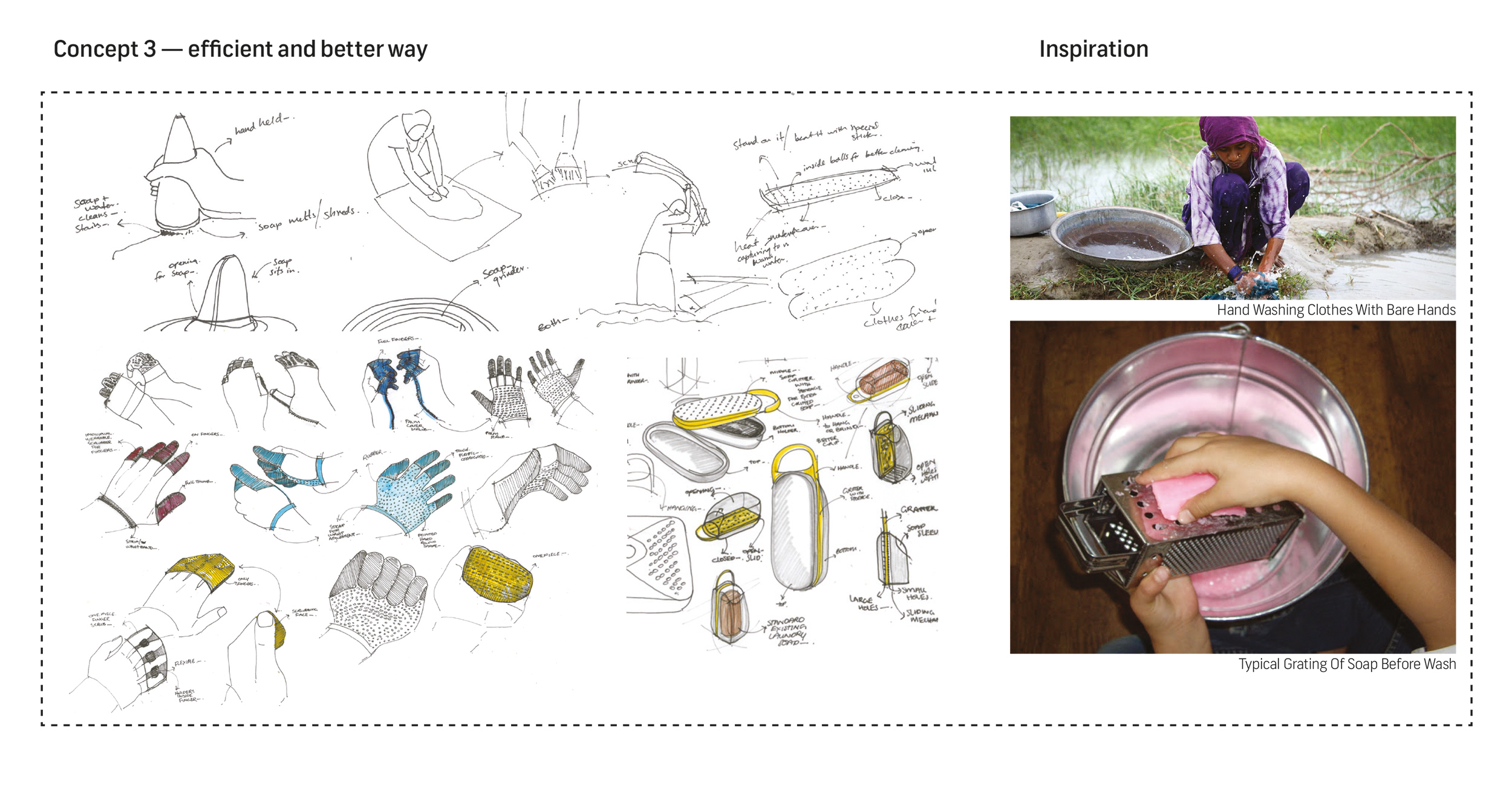 Concept 3 (efficient and better tools).
Concept 3 (efficient and better tools).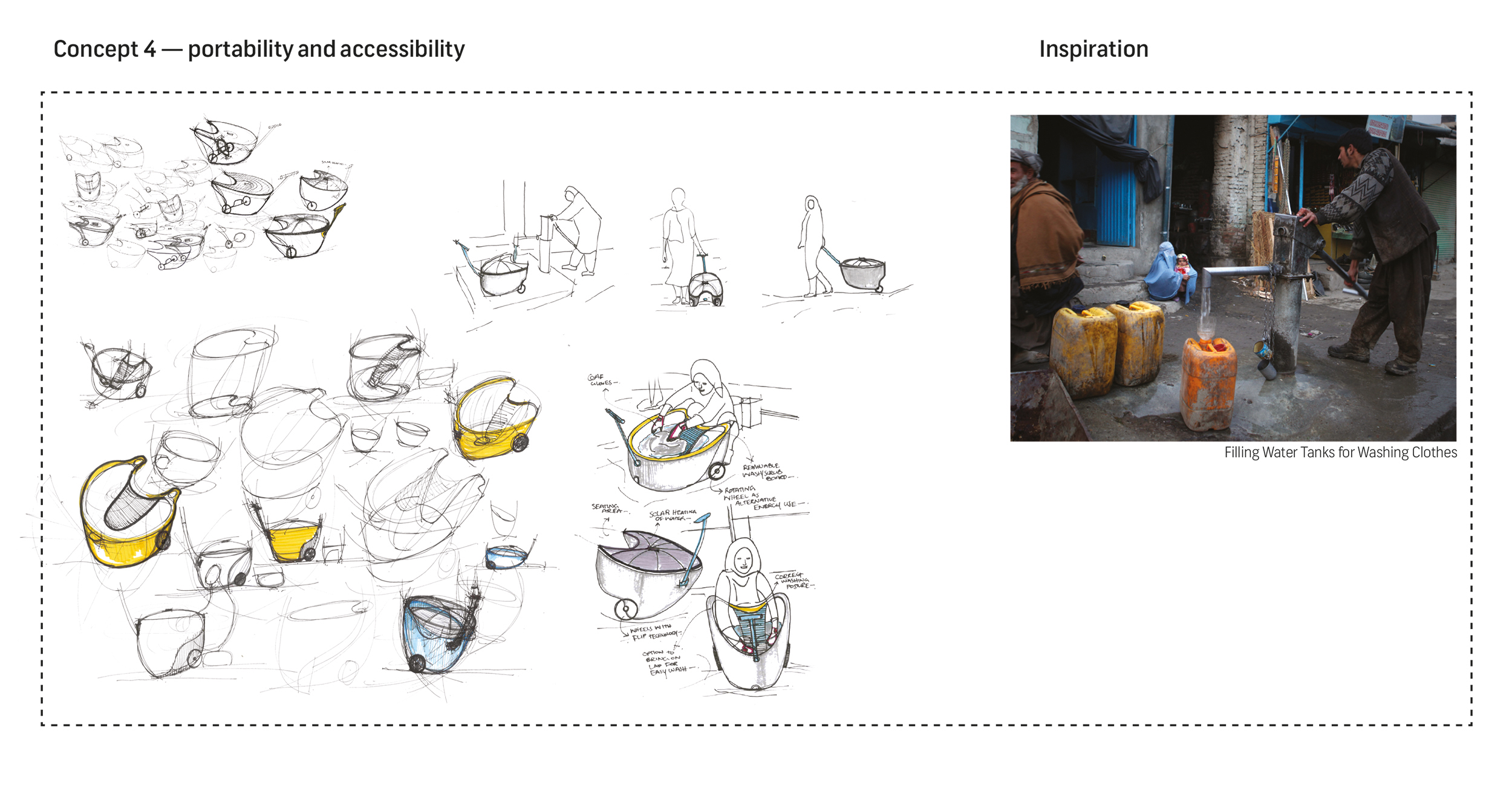 Concept 4 (portable and accessible).
Concept 4 (portable and accessible).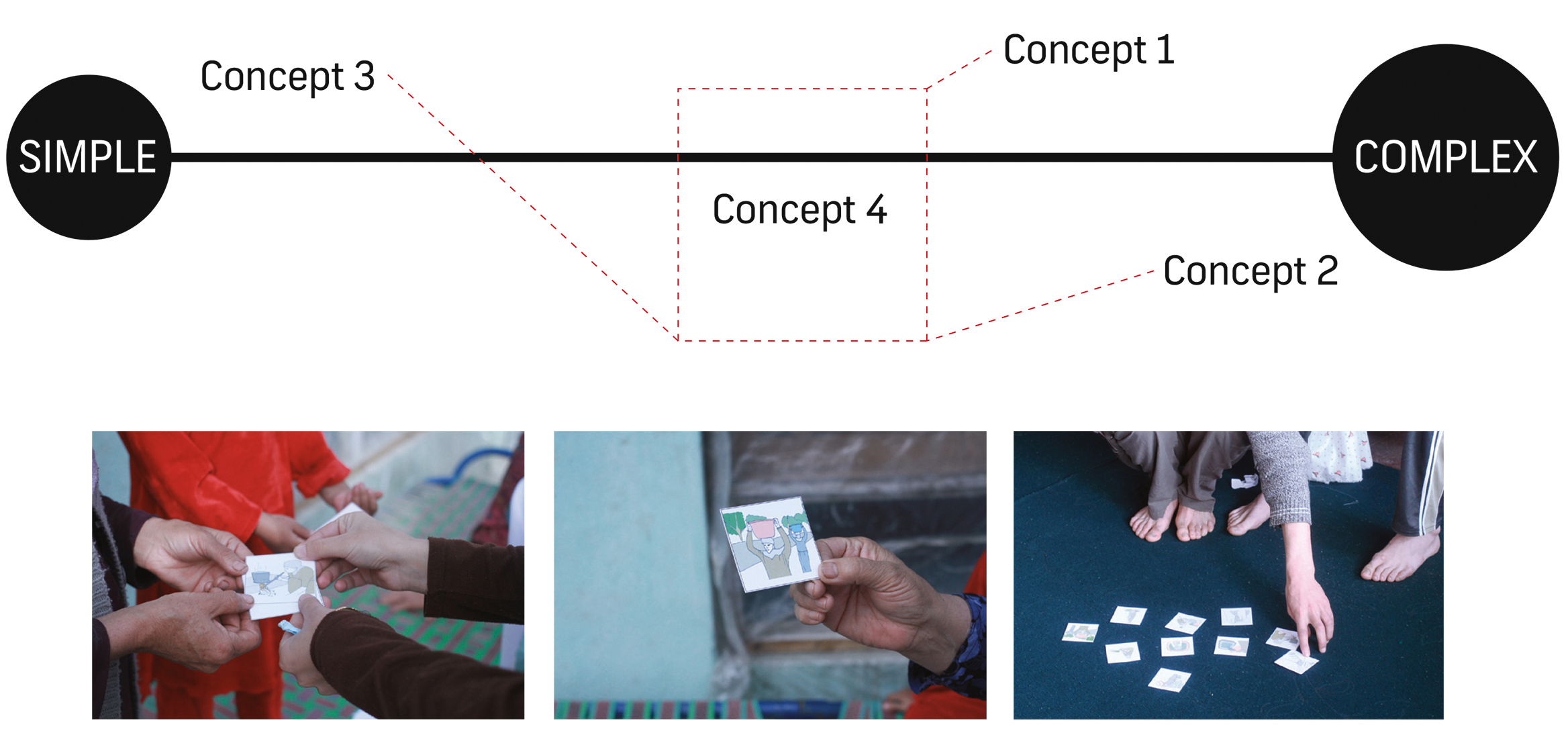 Concept Selection with the End-users (based on usability, low-cost of maintenance and possibility of local manufacturing).
Concept Selection with the End-users (based on usability, low-cost of maintenance and possibility of local manufacturing).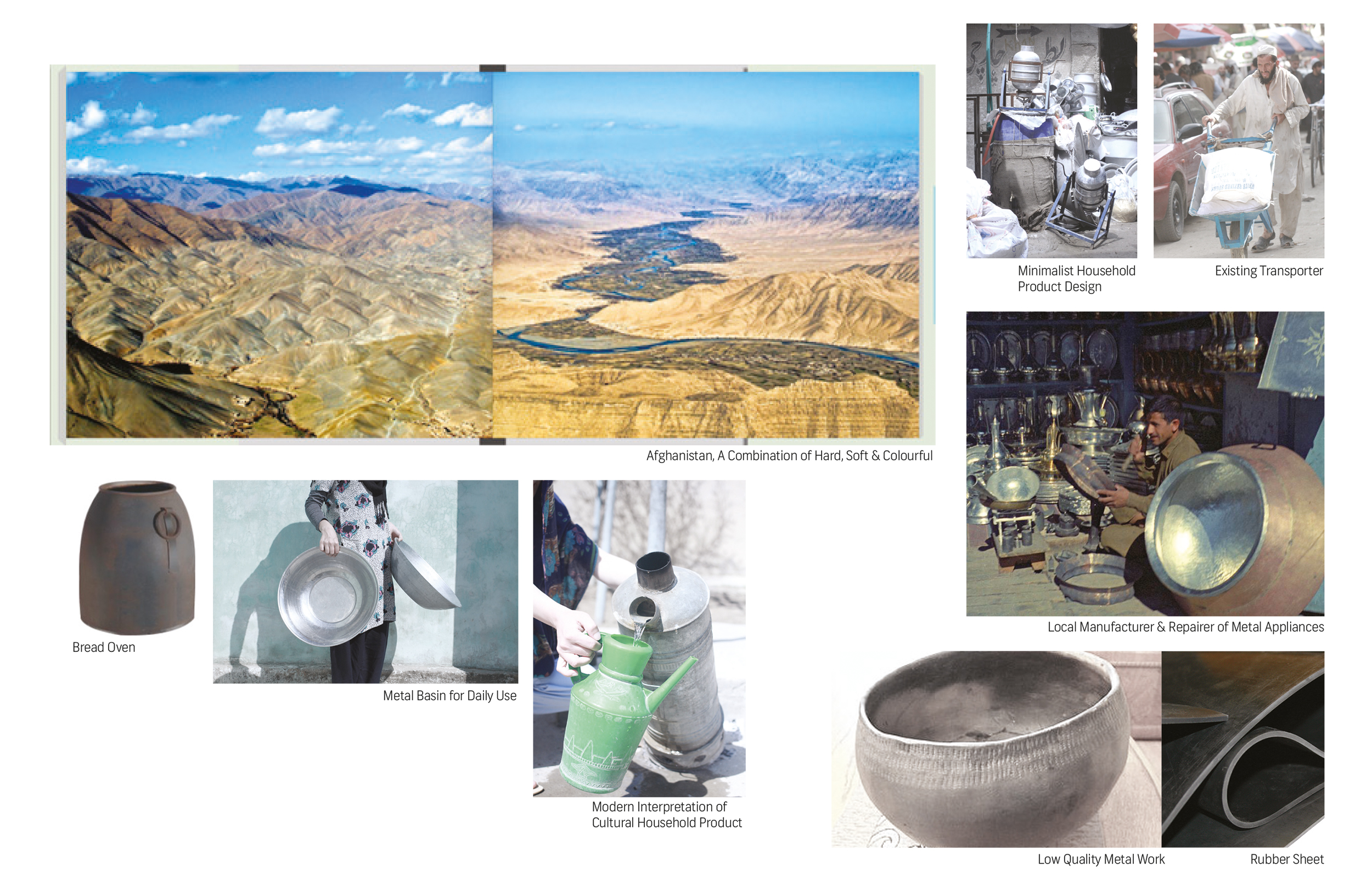 Cultural References.
Cultural References.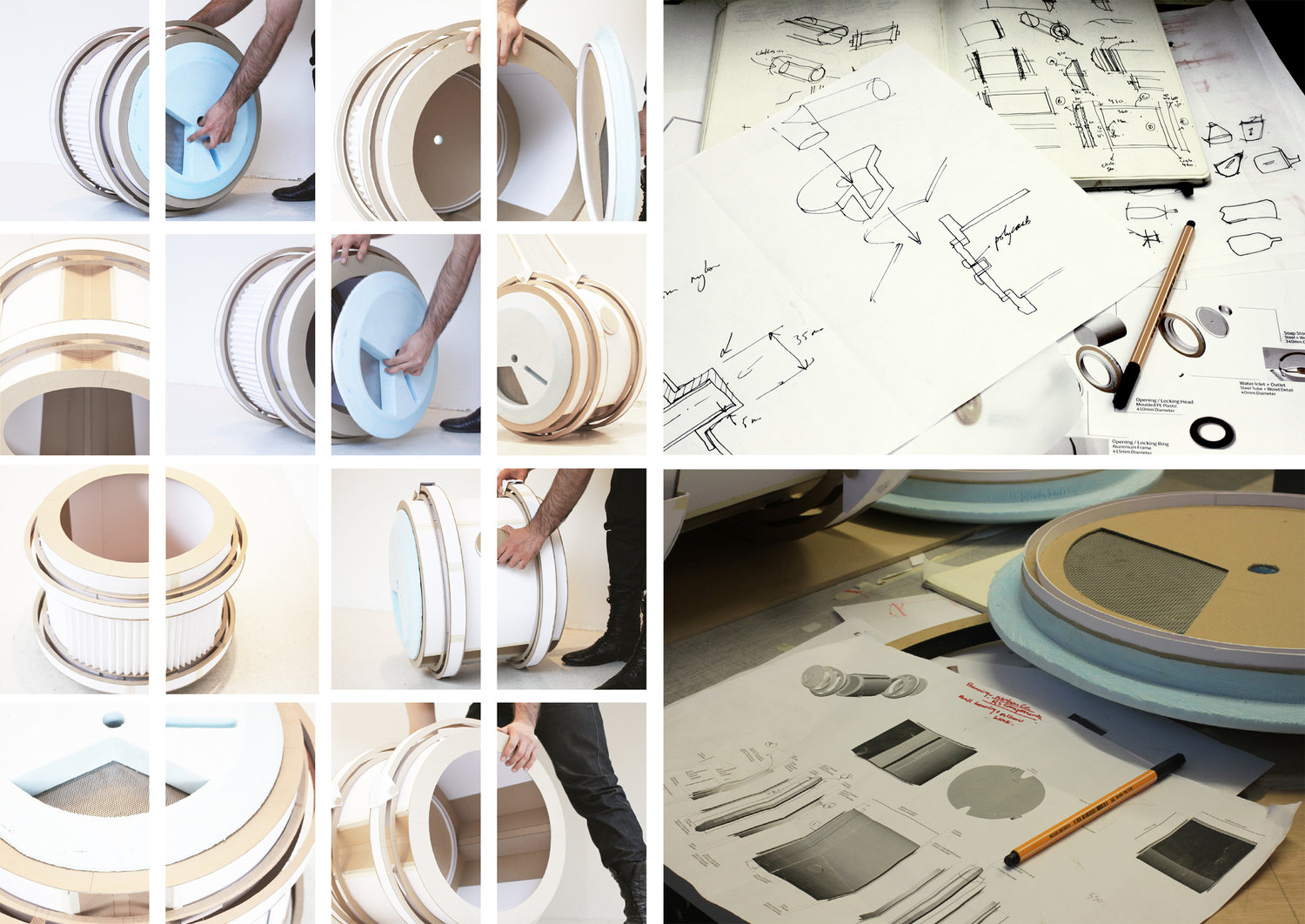 Design Development (Qaf 1.0 for Developed Markets) — thinking-through-making and a combination of drawing and prototyping.
Design Development (Qaf 1.0 for Developed Markets) — thinking-through-making and a combination of drawing and prototyping.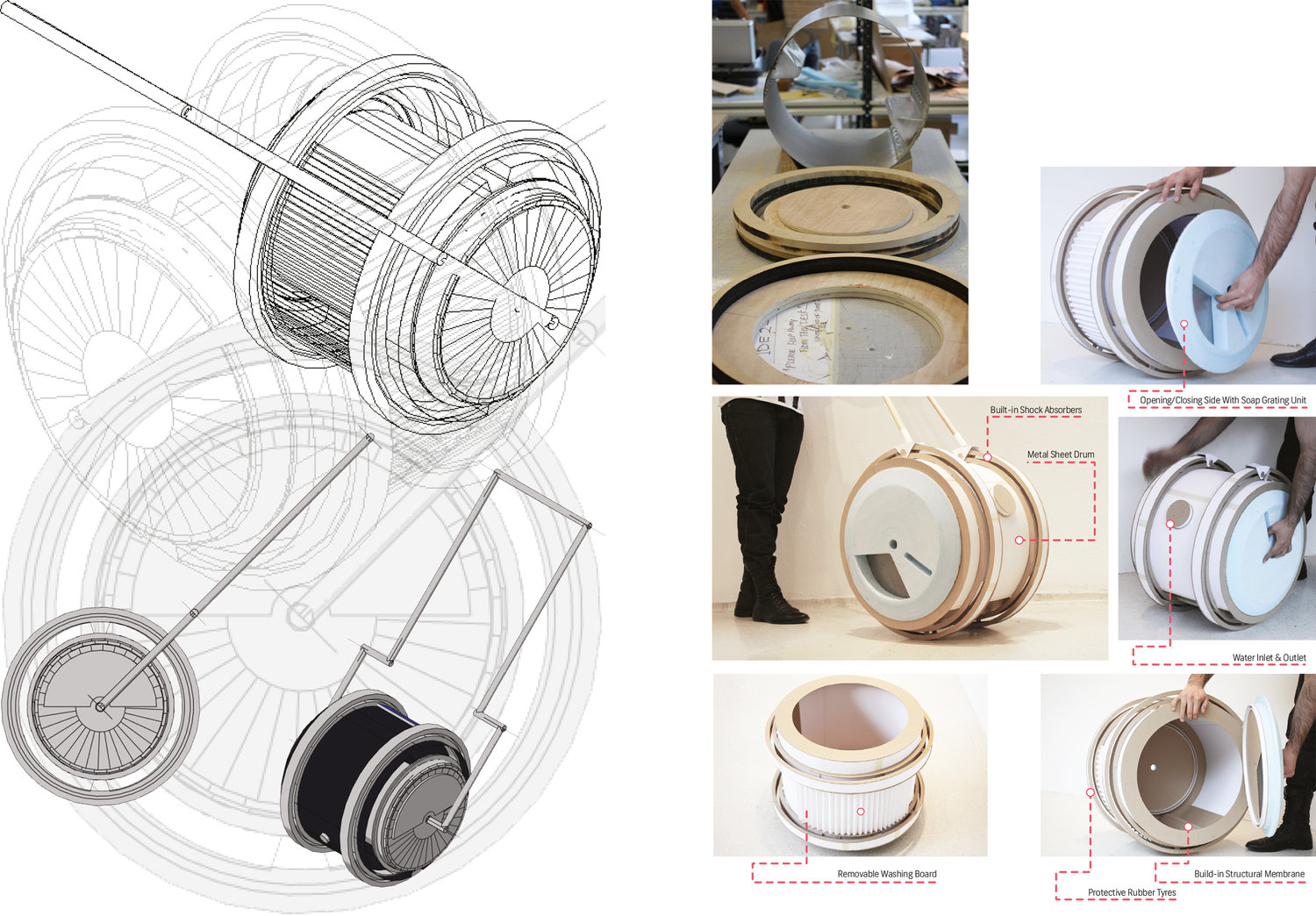 Design Development (Qaf 1.0 for Developed Markets) — iteration and benchmarking with real materials for physical testing.
Design Development (Qaf 1.0 for Developed Markets) — iteration and benchmarking with real materials for physical testing.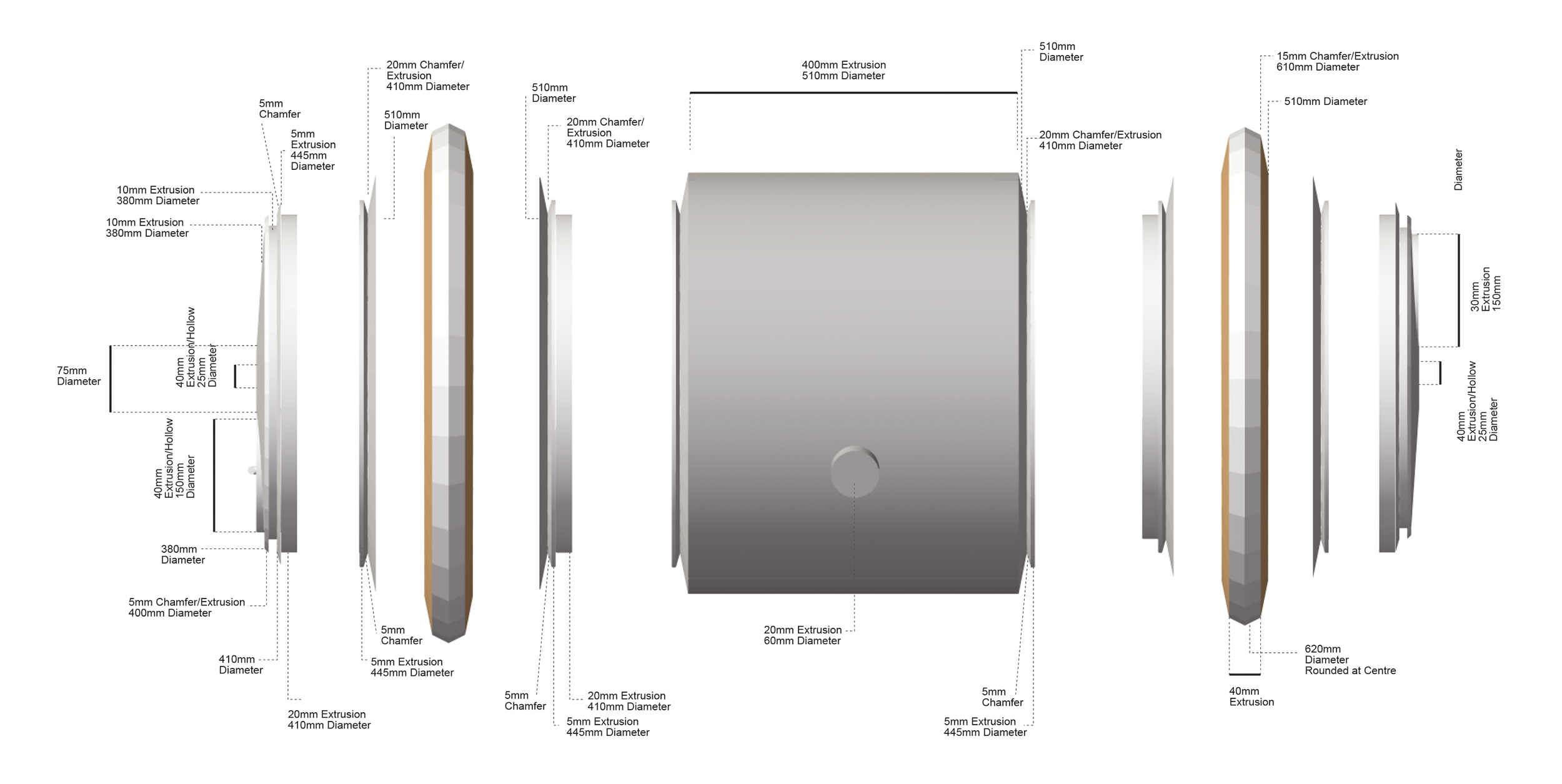 Design Development (Qaf 1.0 for Developed Markets) — key measurements to achieve a 6-8kg capacity.
Design Development (Qaf 1.0 for Developed Markets) — key measurements to achieve a 6-8kg capacity.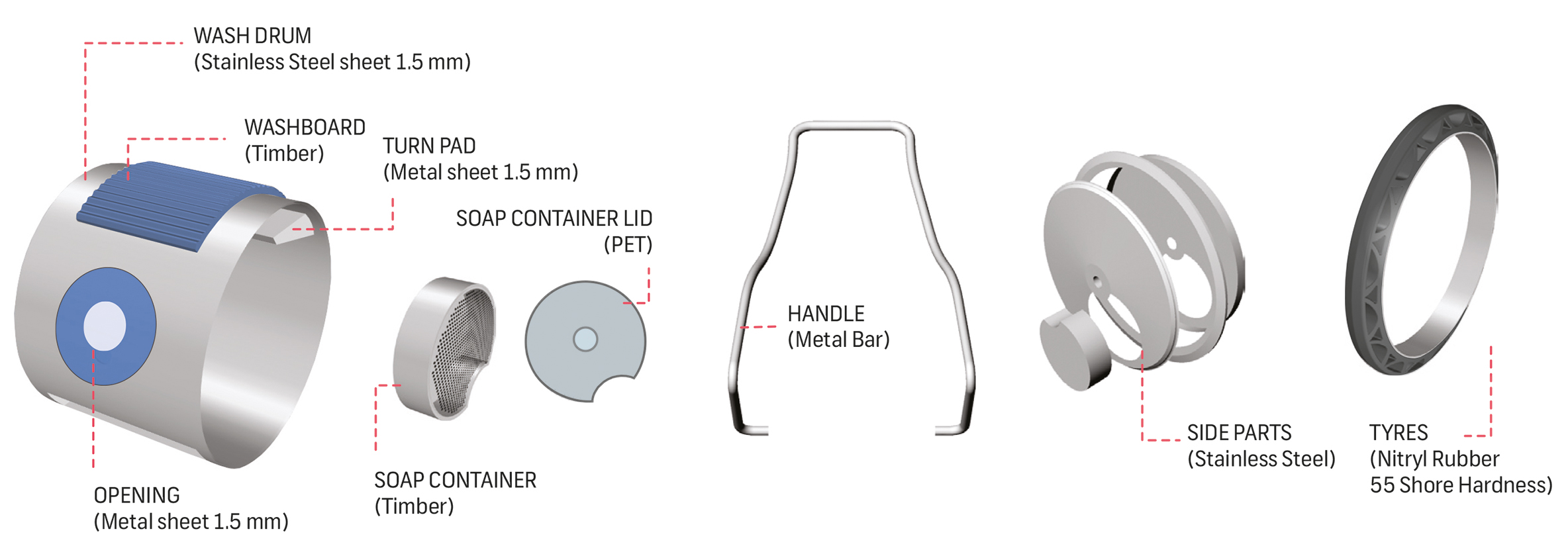 Design Development (Qaf 1.0 for Developed Markets) — key components.
Design Development (Qaf 1.0 for Developed Markets) — key components.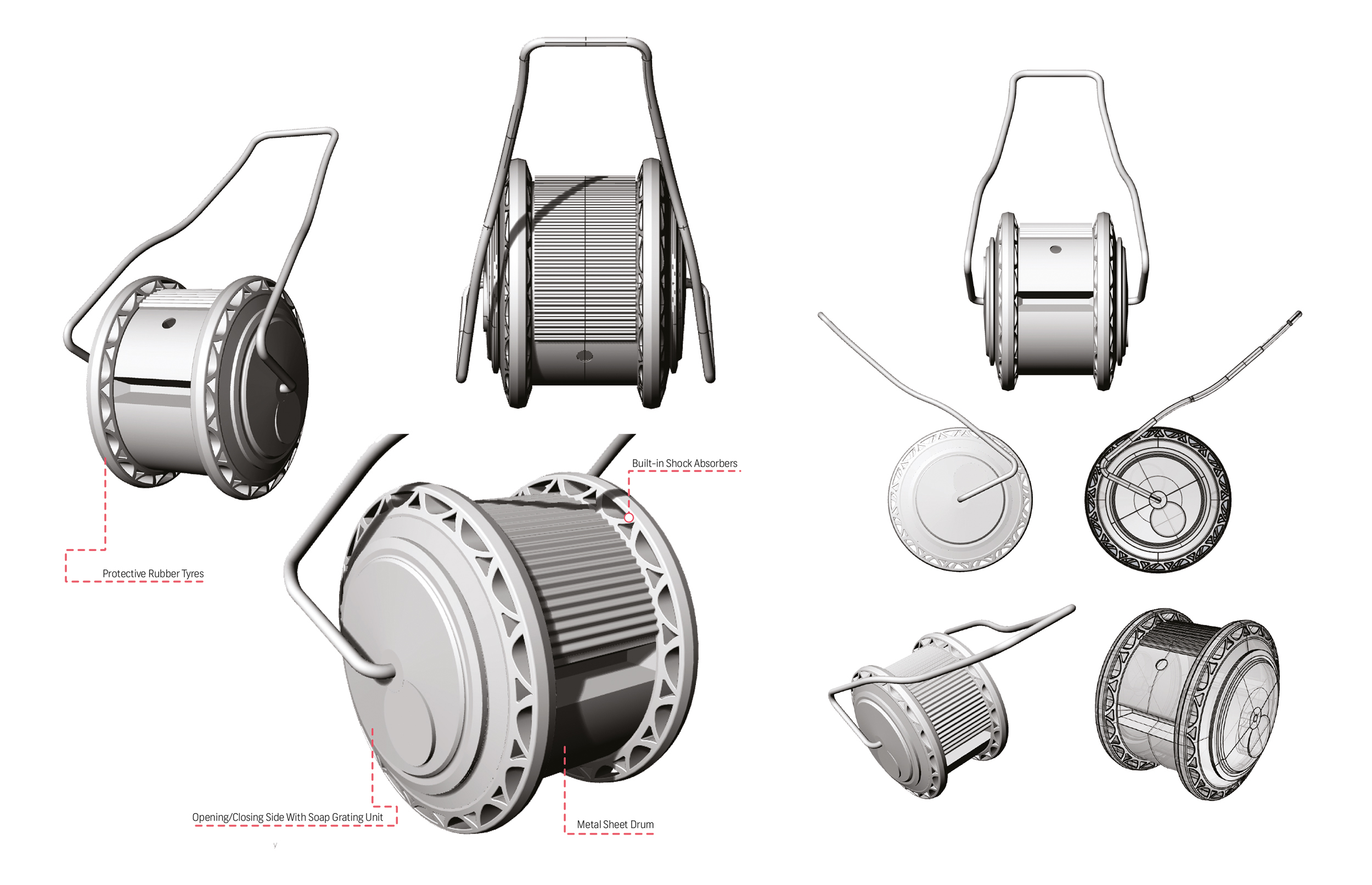 Design Development (Qaf 1.0 for Developed Markets) — aesthetics and scale.
Design Development (Qaf 1.0 for Developed Markets) — aesthetics and scale. Design Development (Qaf 1.0 for Emerging Markets) — thinking-through-making and a combination of drawing and prototyping in the context.
Design Development (Qaf 1.0 for Emerging Markets) — thinking-through-making and a combination of drawing and prototyping in the context.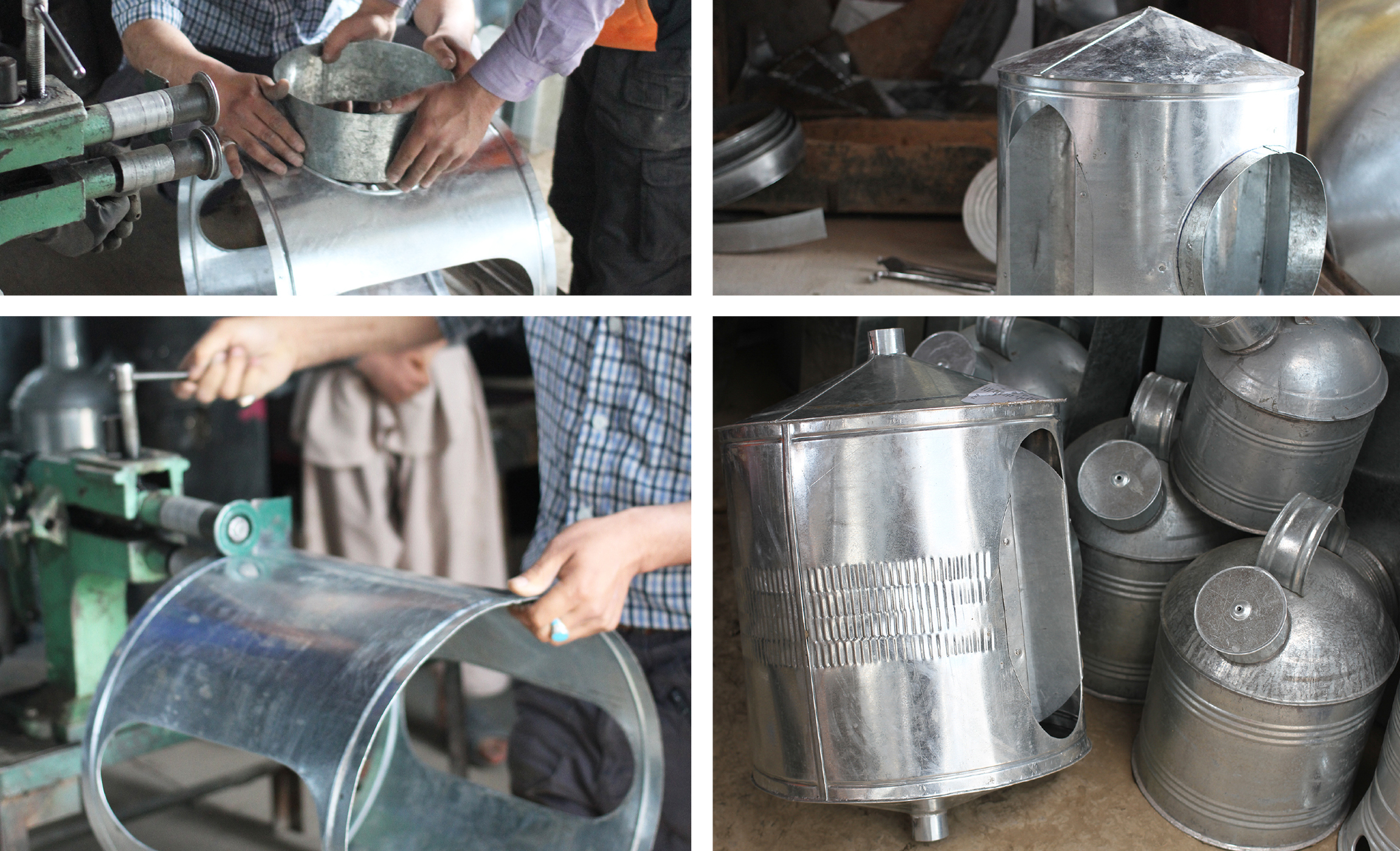 Design Development (Qaf 1.0 for Emerging Markets) — context-based making with available resources and manufacturing techniques.
Design Development (Qaf 1.0 for Emerging Markets) — context-based making with available resources and manufacturing techniques.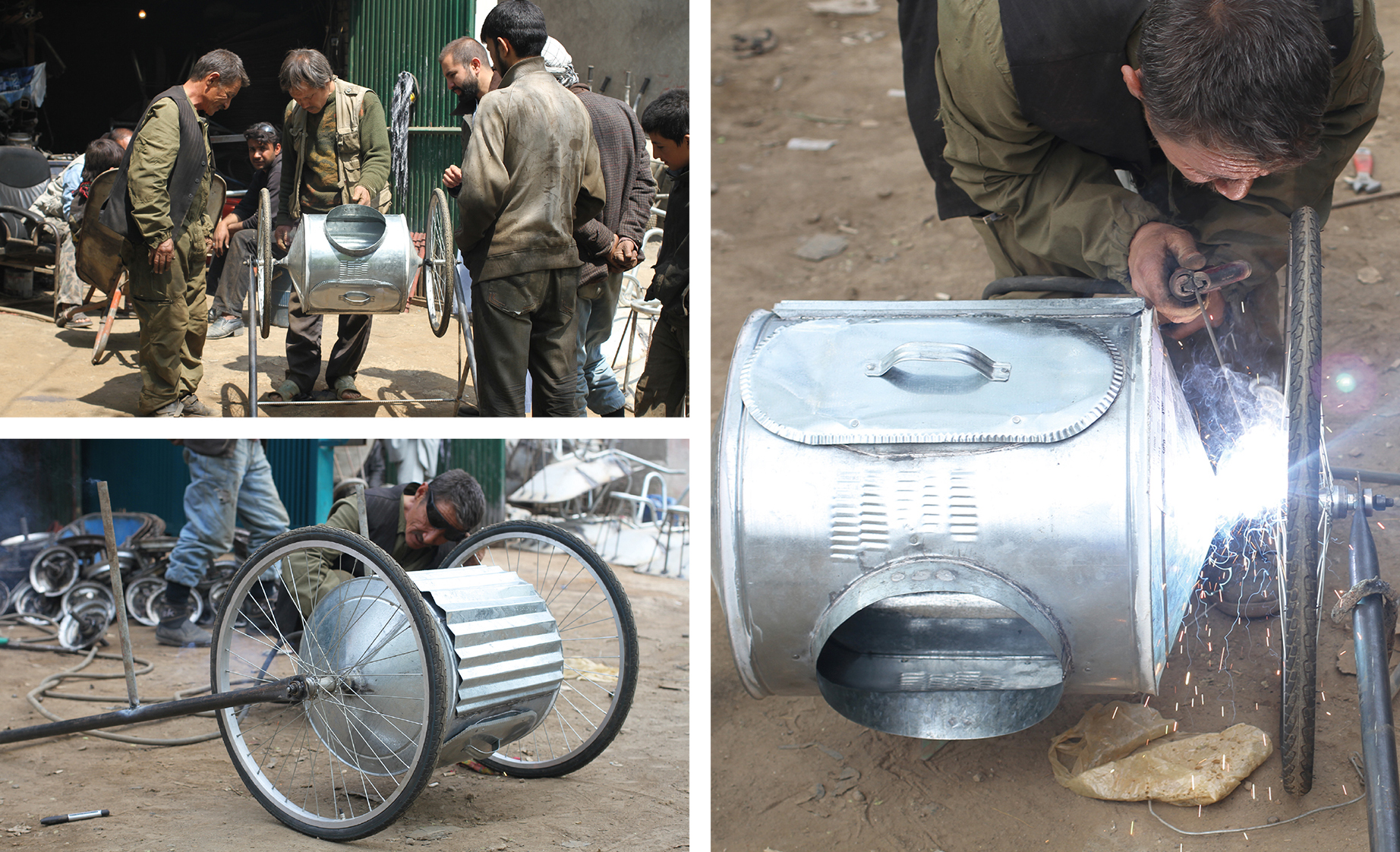 Design Development (Qaf 1.0 for Emerging Markets) — context-based making with available expertise and cultural values.
Design Development (Qaf 1.0 for Emerging Markets) — context-based making with available expertise and cultural values.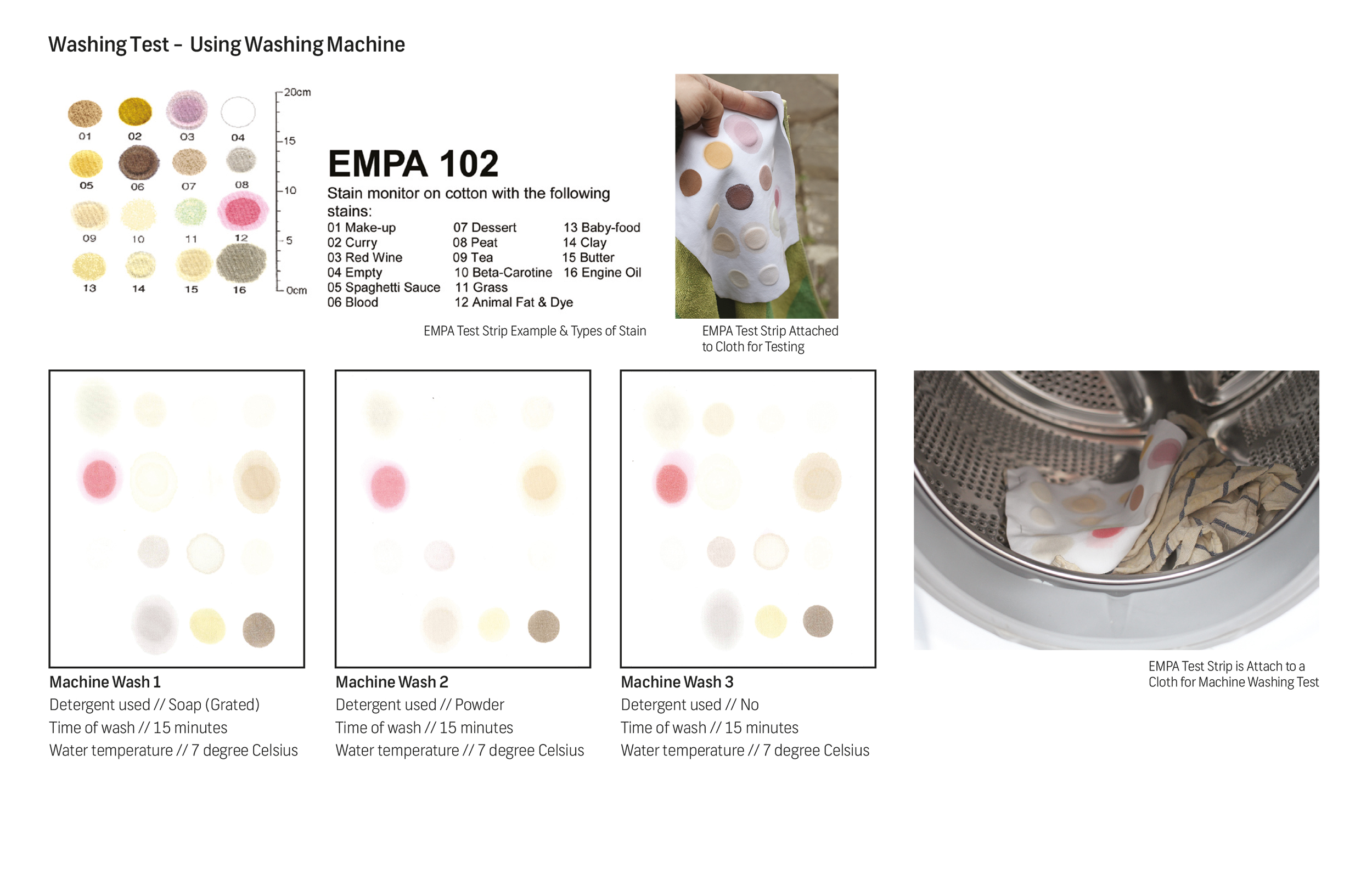 Testing Washing Quality (washing machine) — lower quality with the use of detergent.
Testing Washing Quality (washing machine) — lower quality with the use of detergent.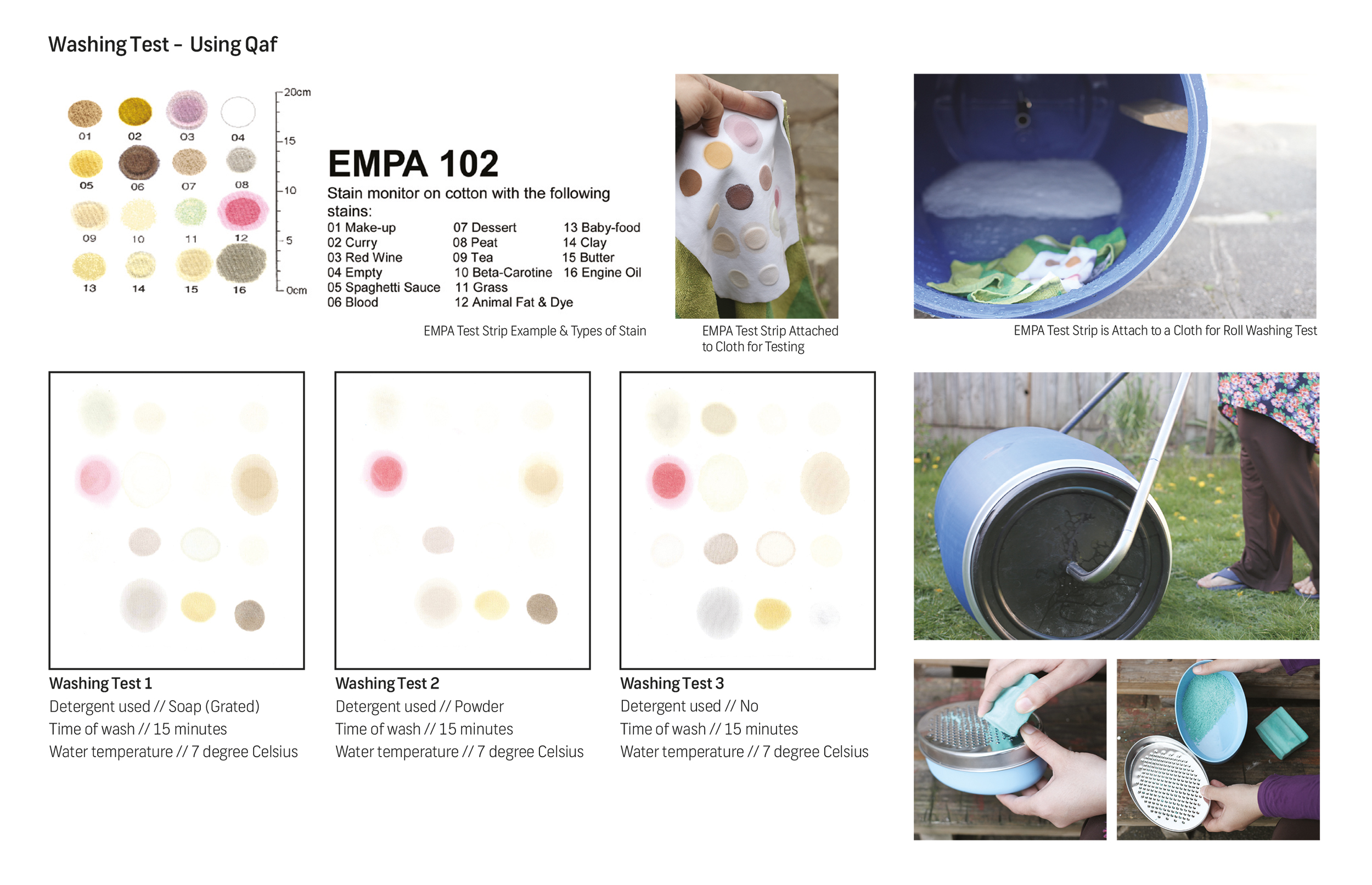 Testing Washing Quality (Qaf 1.0) — 80% less water, no skin interaction from detergent, 70% efficient than hand washing and 75% reduction of time.
Testing Washing Quality (Qaf 1.0) — 80% less water, no skin interaction from detergent, 70% efficient than hand washing and 75% reduction of time.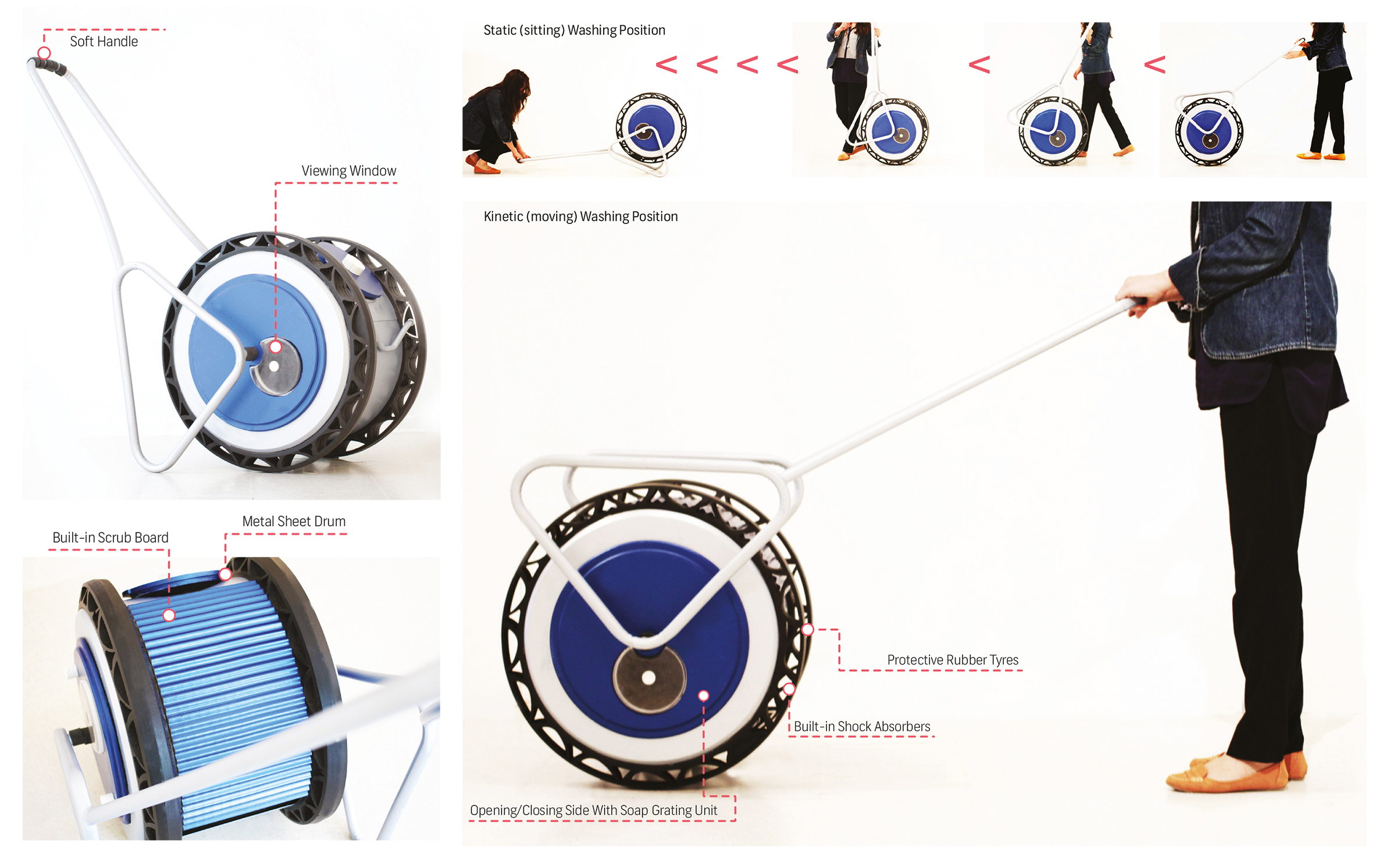 Qaf 1.0 (Developed Markets).
Qaf 1.0 (Developed Markets). Qaf 1.0 (Emerging Markets).
Qaf 1.0 (Emerging Markets).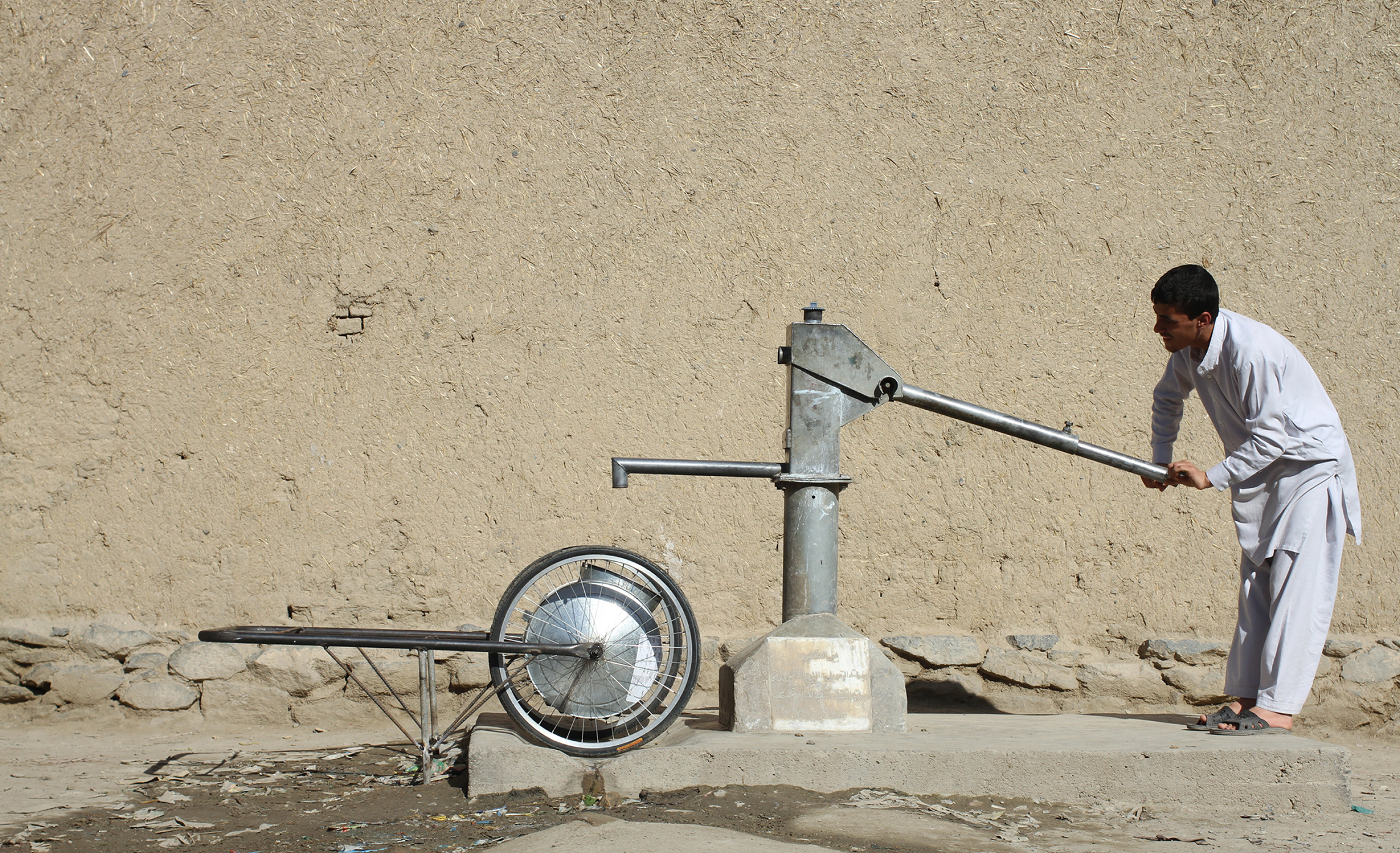 Qaf 1.0 (Emerging Markets).
Qaf 1.0 (Emerging Markets).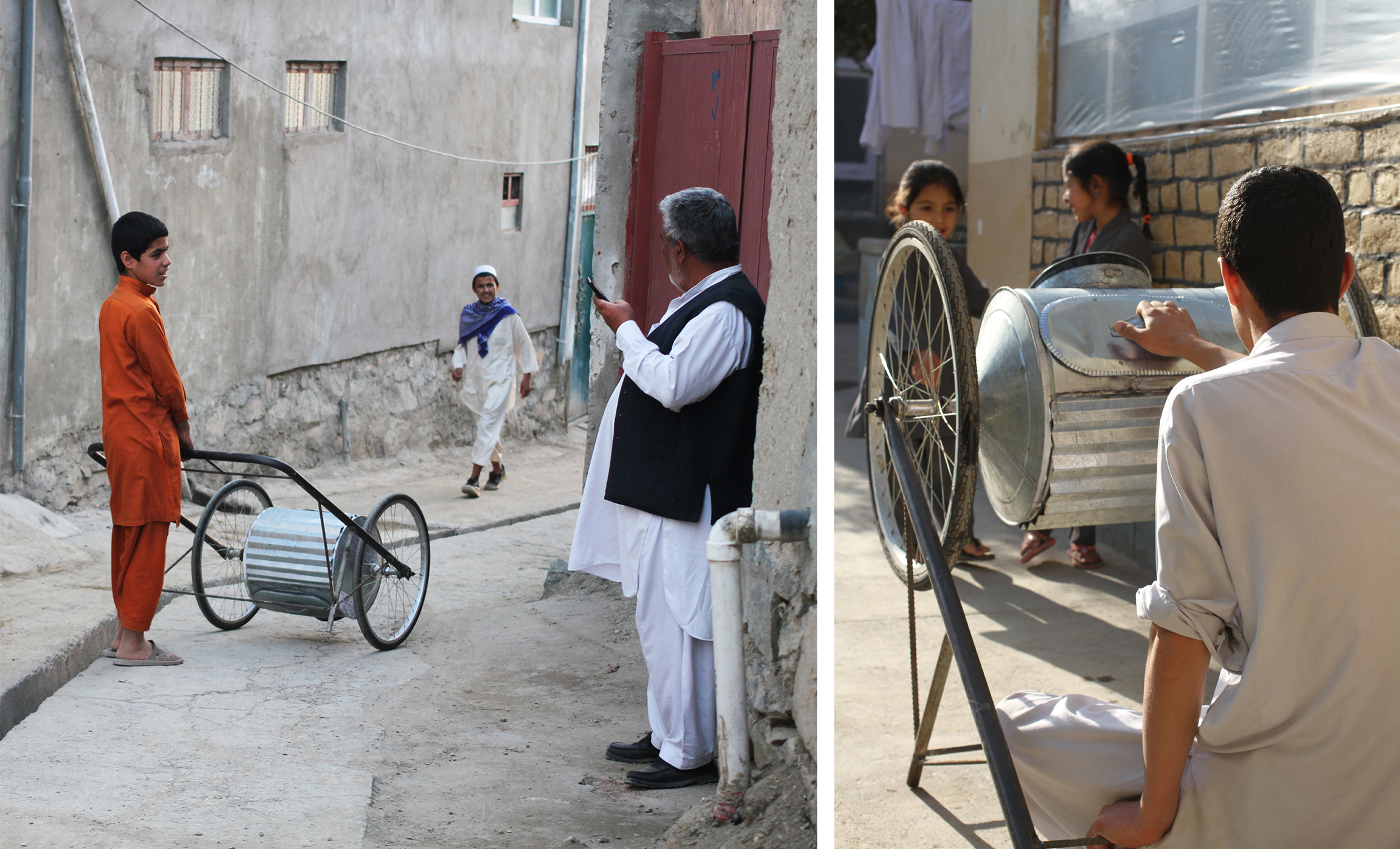 Qaf 1.0 (Emerging Markets).
Qaf 1.0 (Emerging Markets).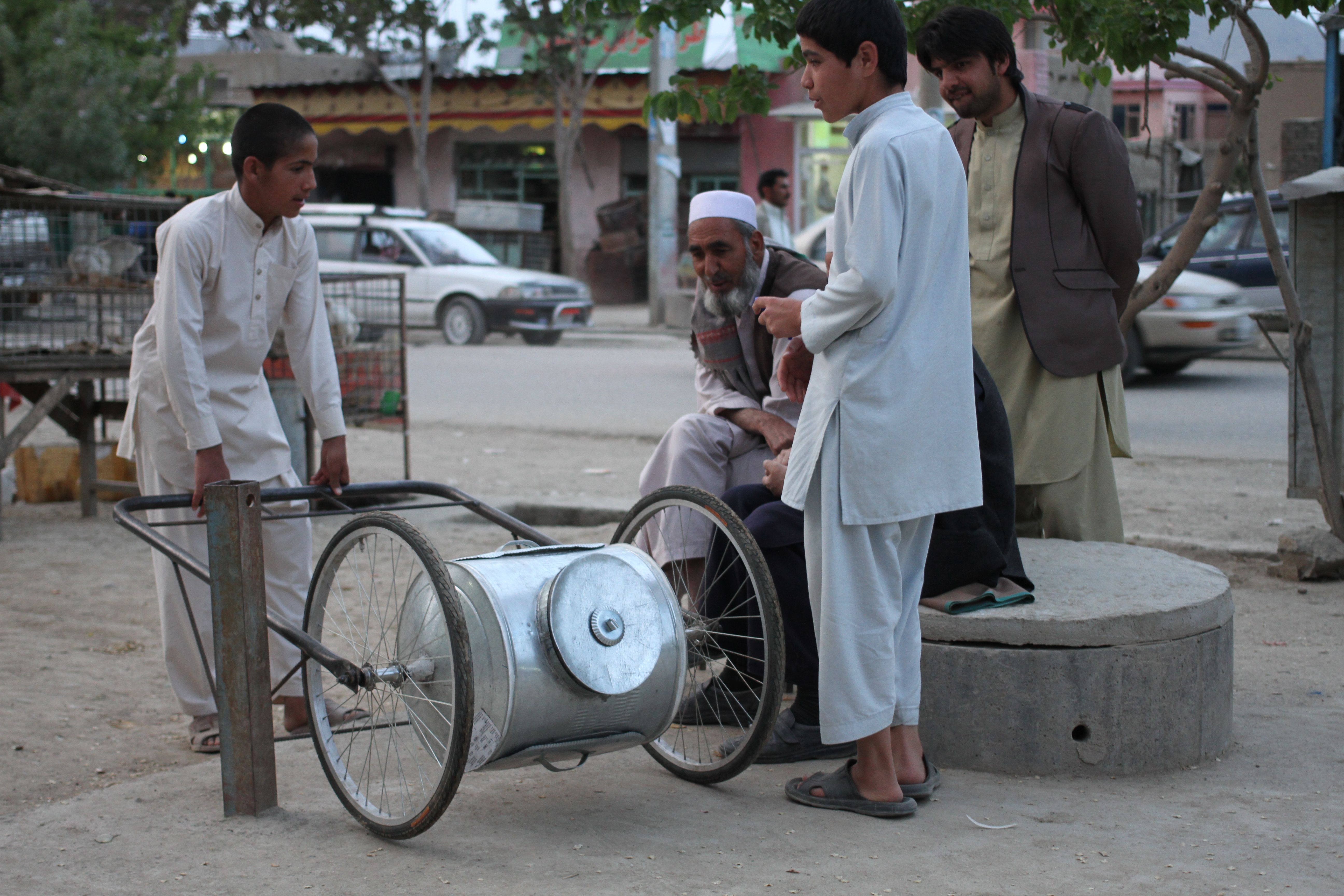 Qaf 1.0 (Emerging Markets).
Qaf 1.0 (Emerging Markets).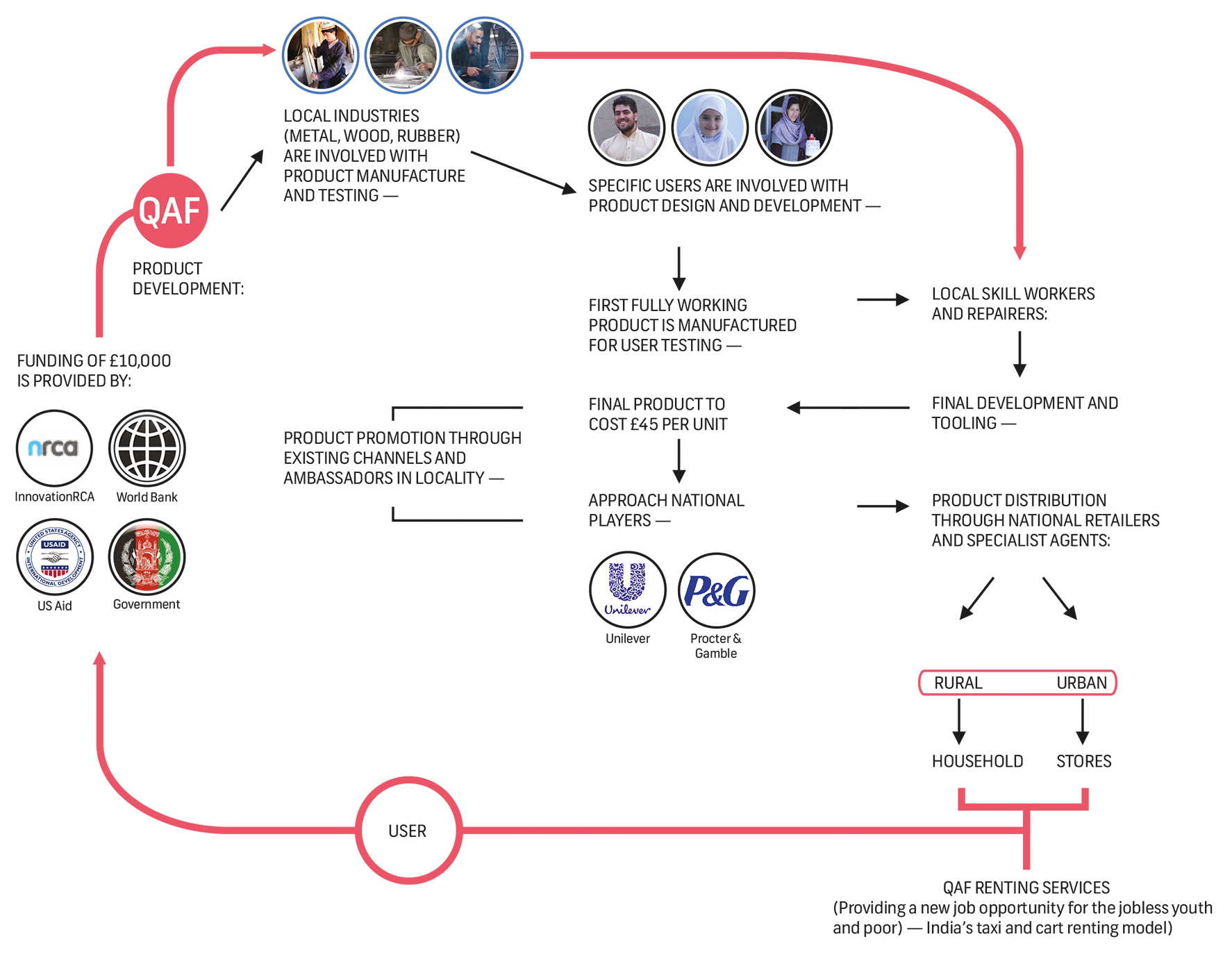 Qaf 1.0 (Emerging Markets) — enterprise system.
Qaf 1.0 (Emerging Markets) — enterprise system.Organisation + [Credits]
InnovationRCA, [Idrees Rasouli]
Role + [Team Size]
Fellow, [4]
Date + [Duration of Involvement]
2013-14, [14 months]
Funder + [Project Location]
James Dyson Foundation + Wates Foundation, [Kabul, Afghanistan]
Status + [Project Type]
Proof of Concept, [New Product Innovation]
Brief + [Challenge]
Changing Cultural & Behavioural Practices, [Disruptive Market Innovation]